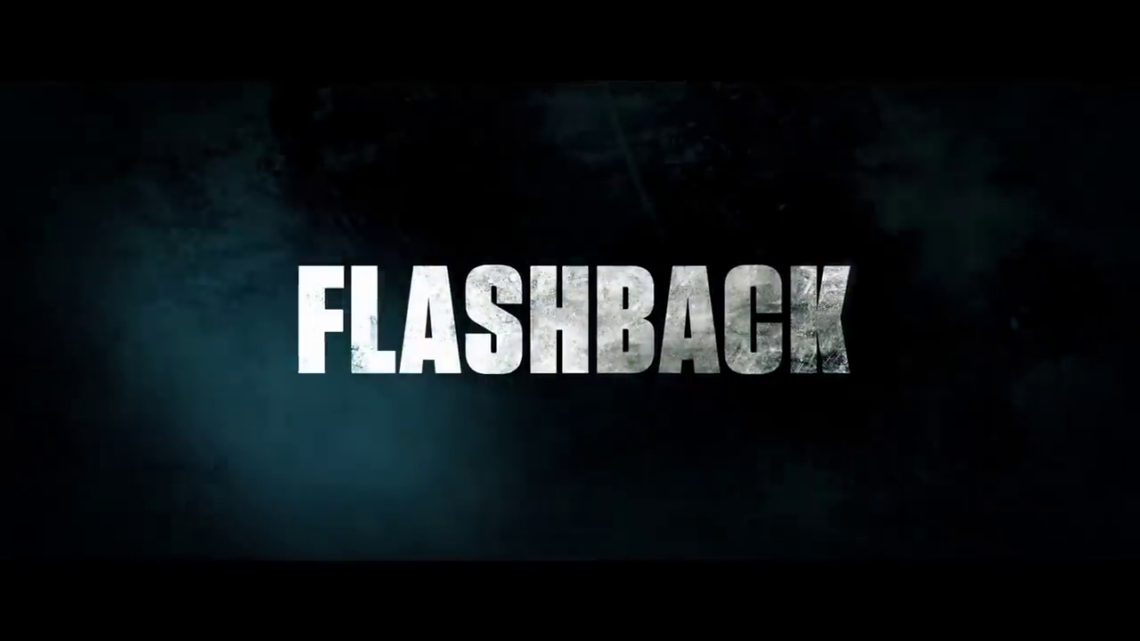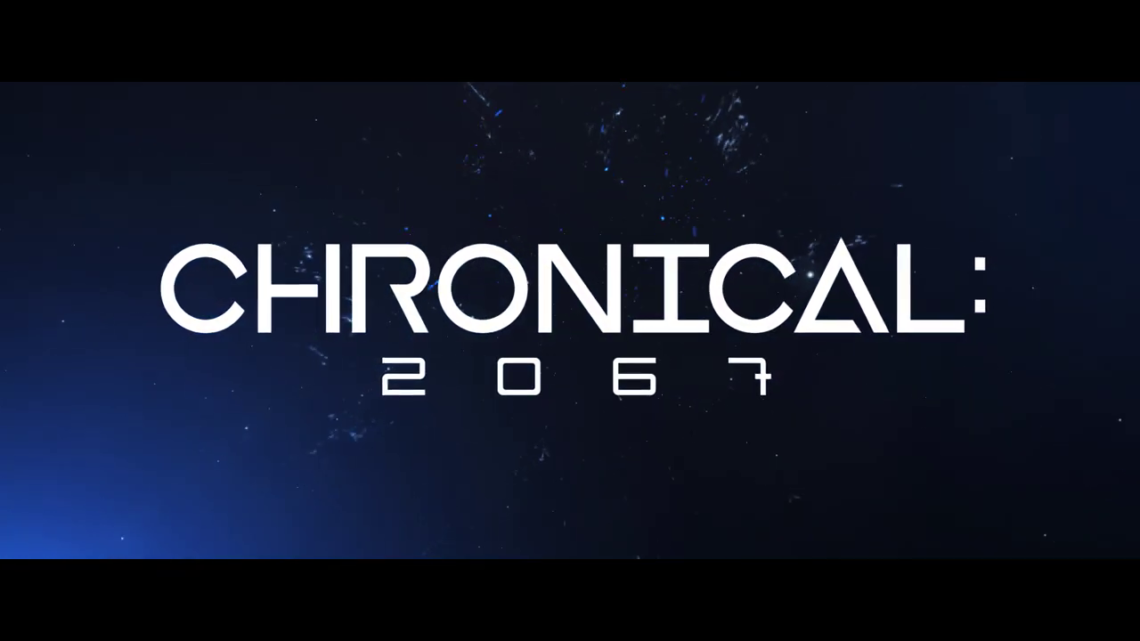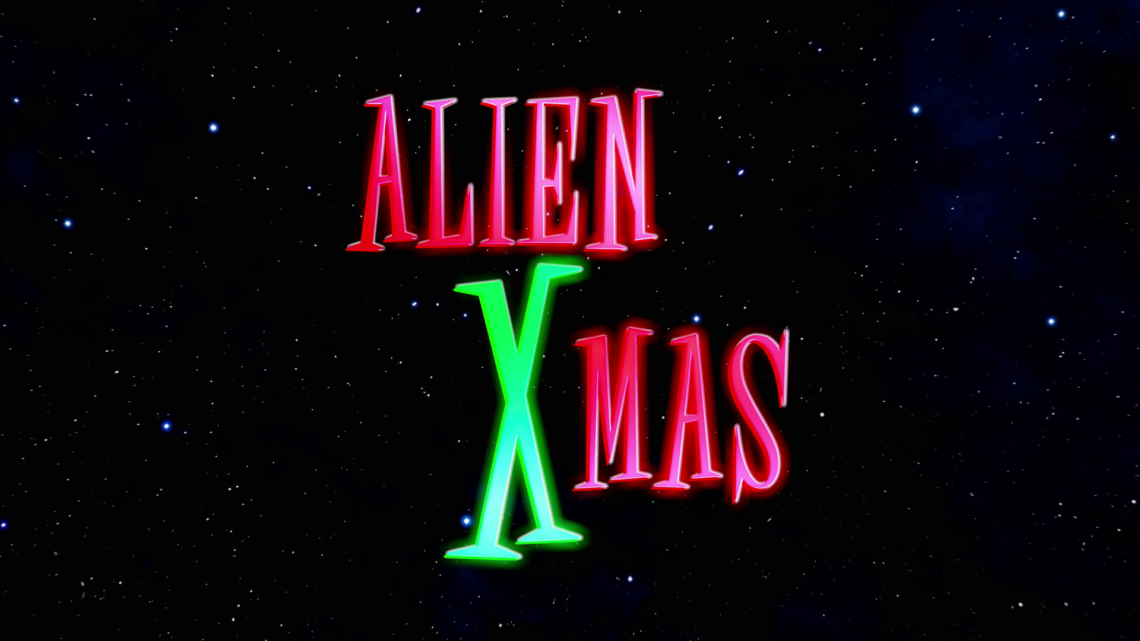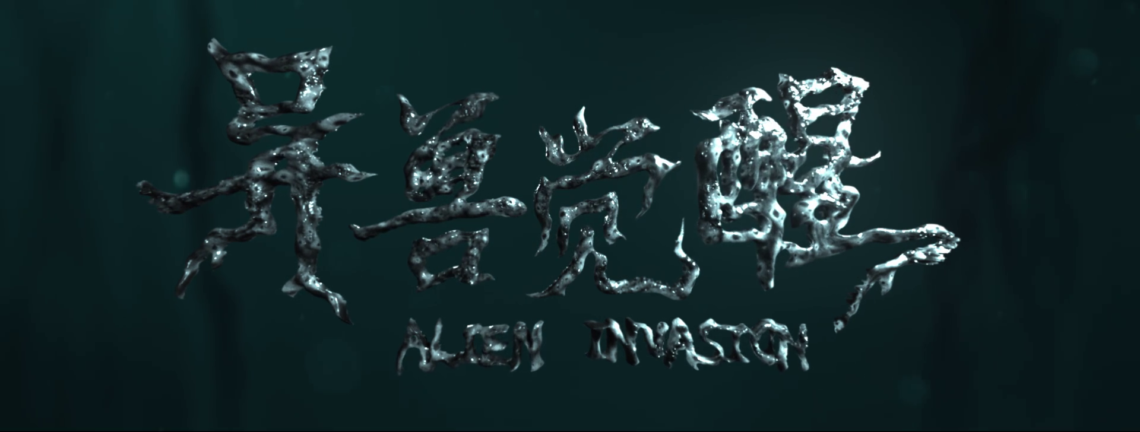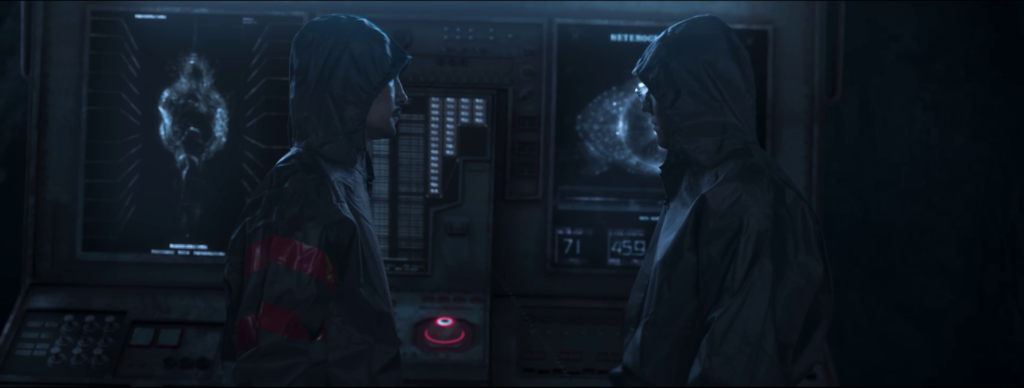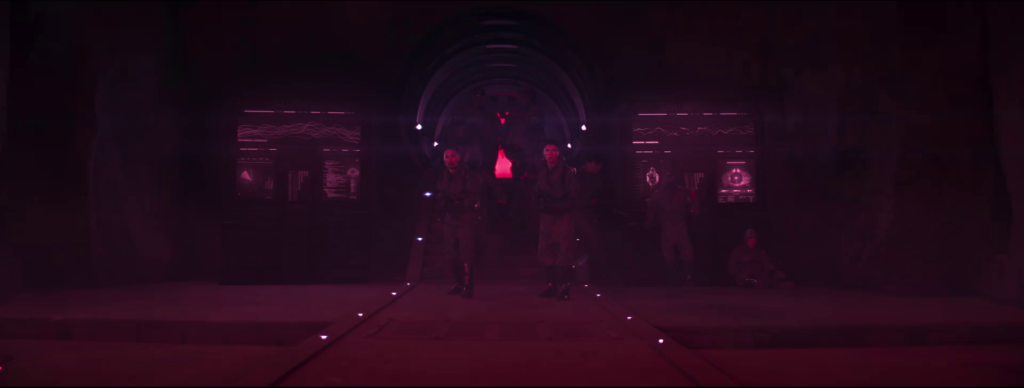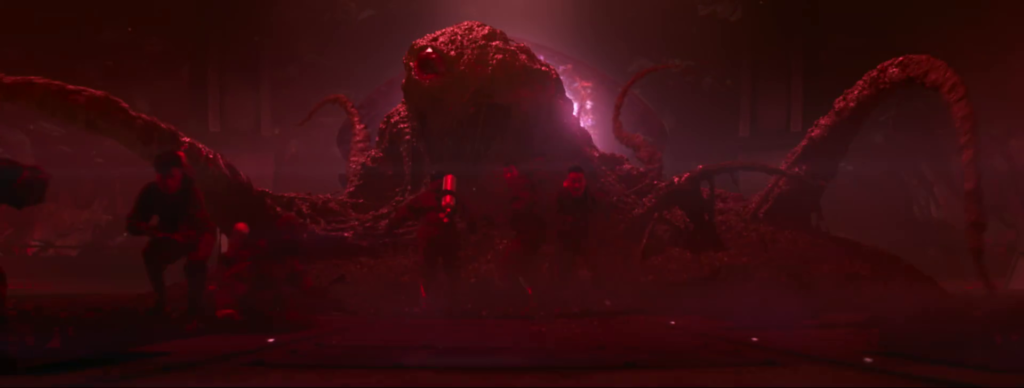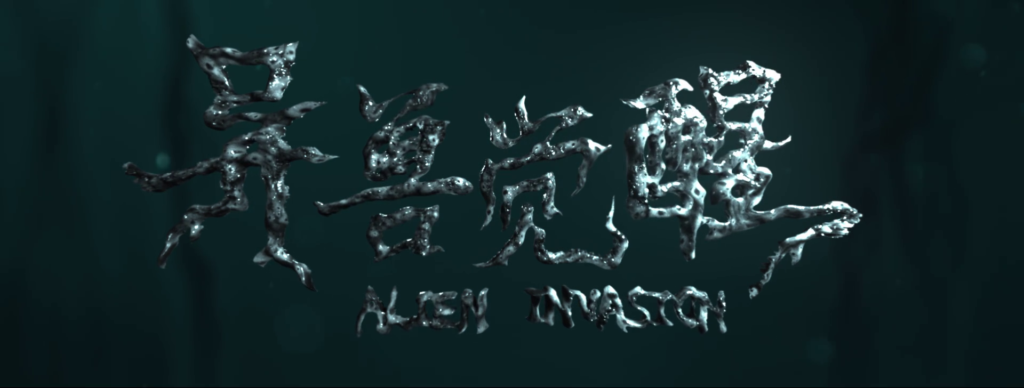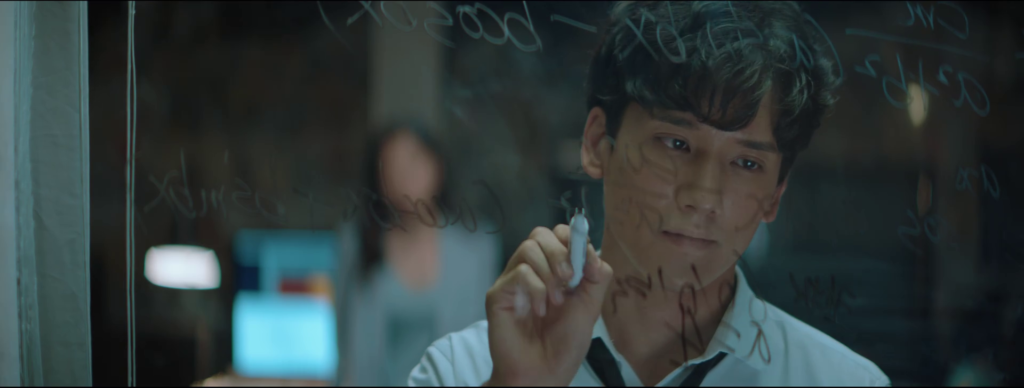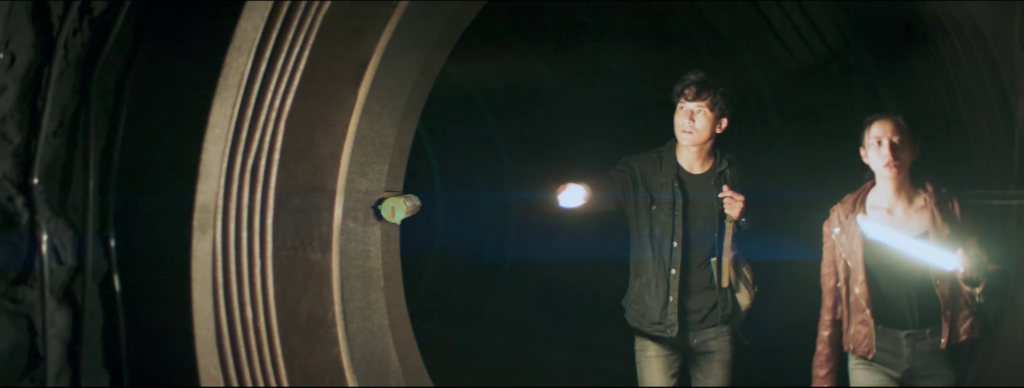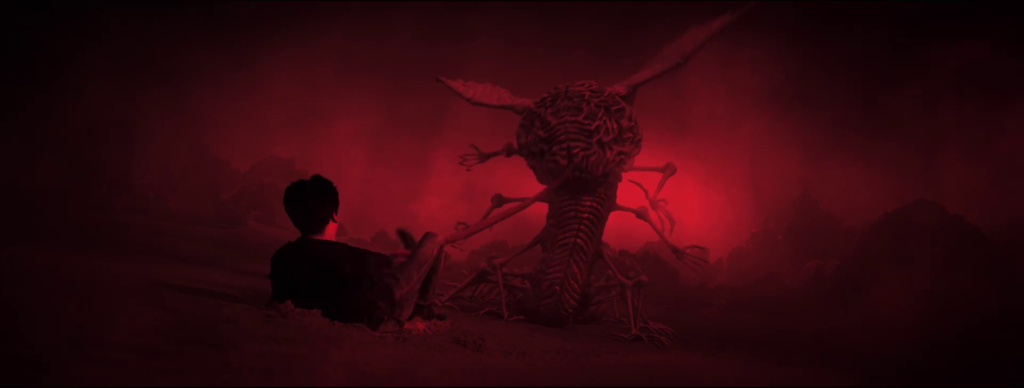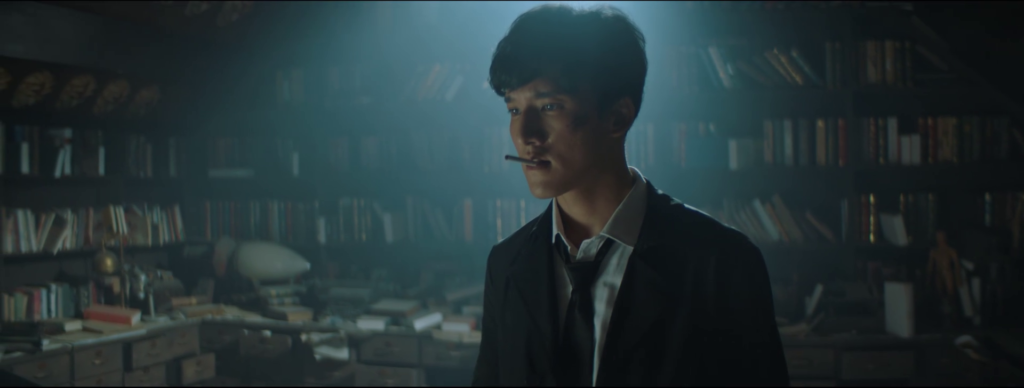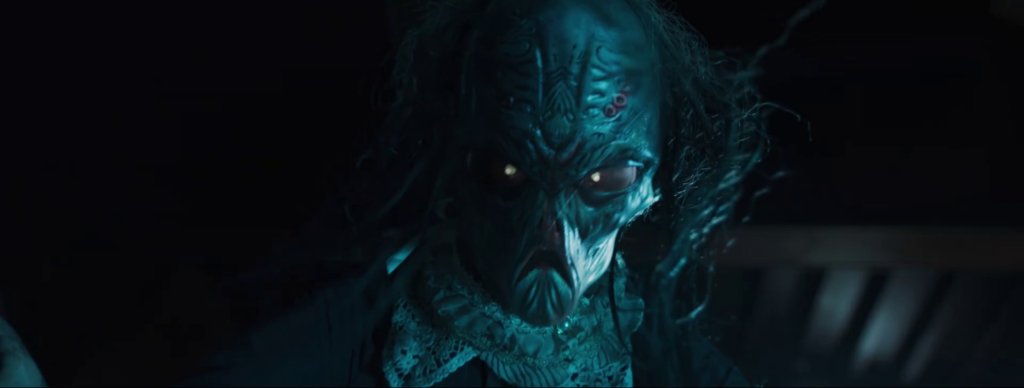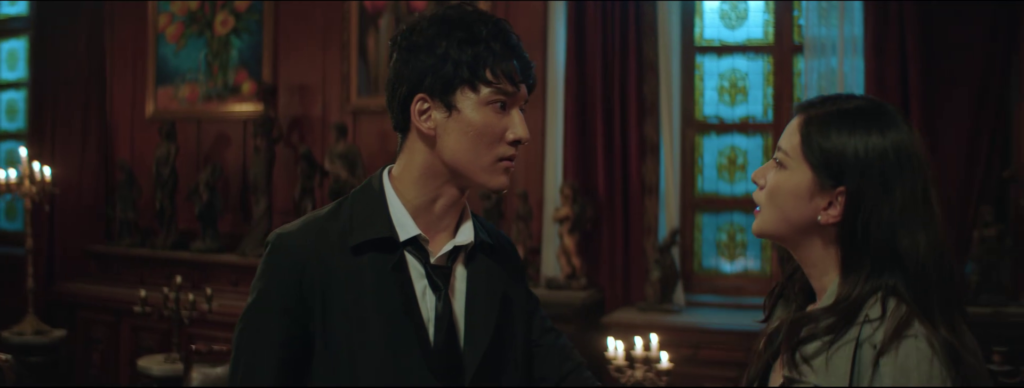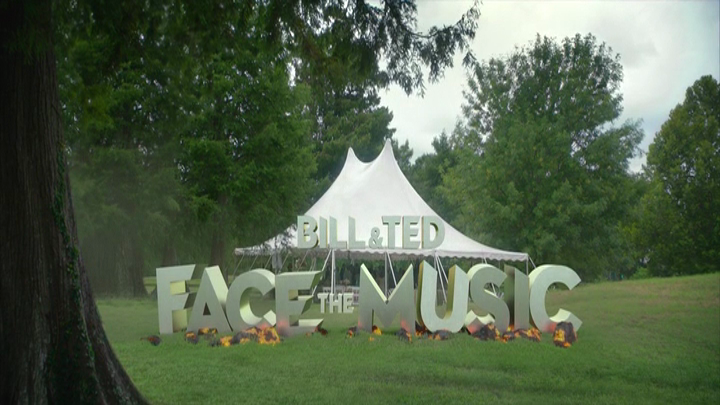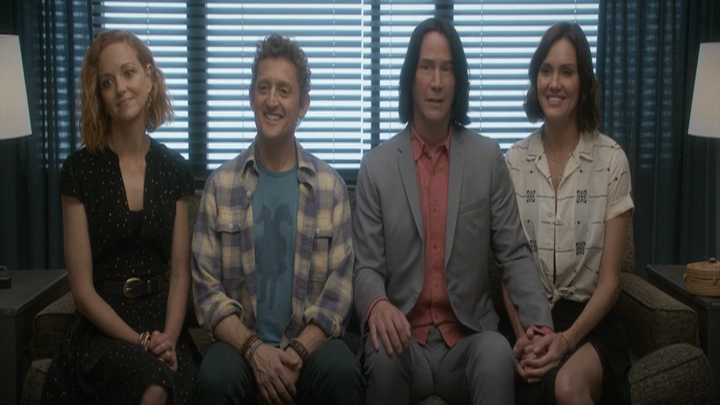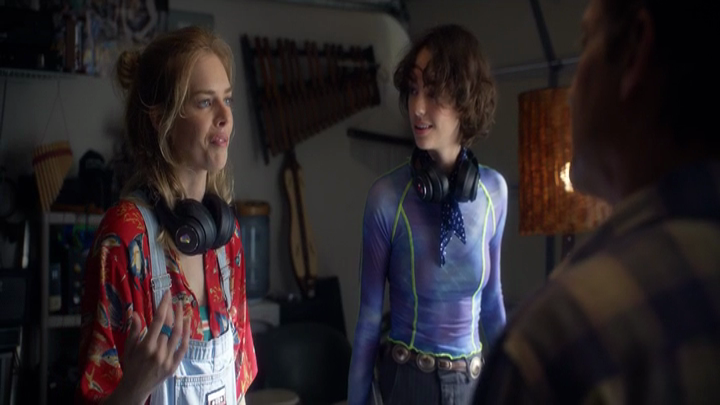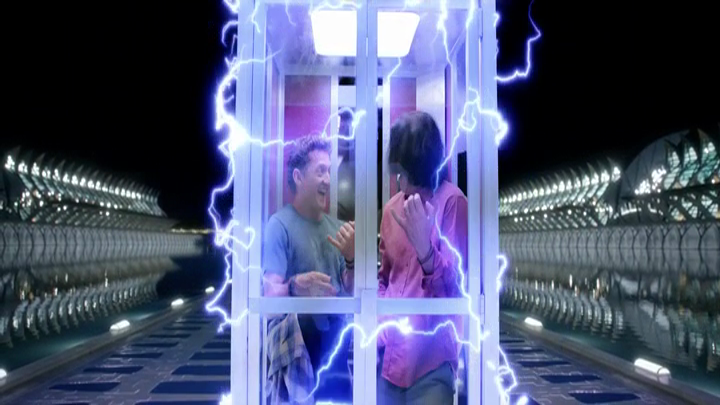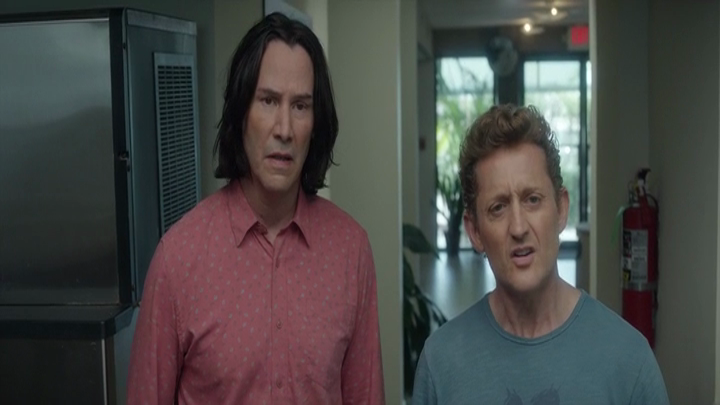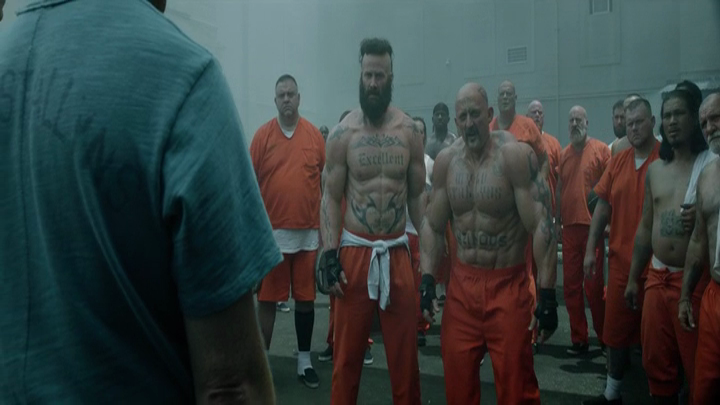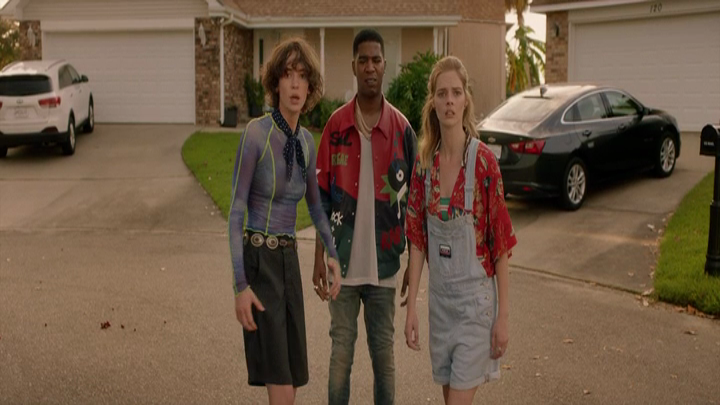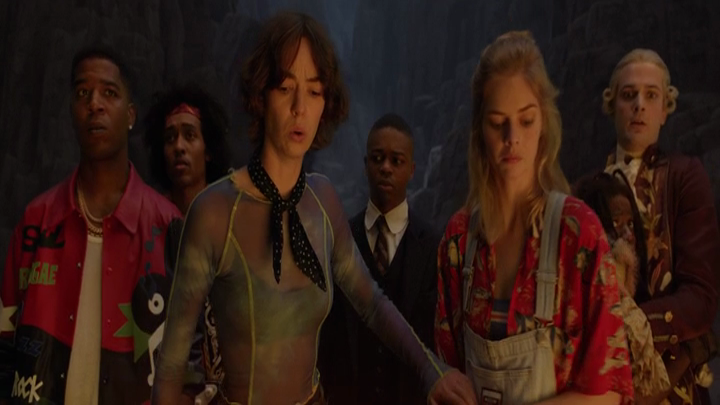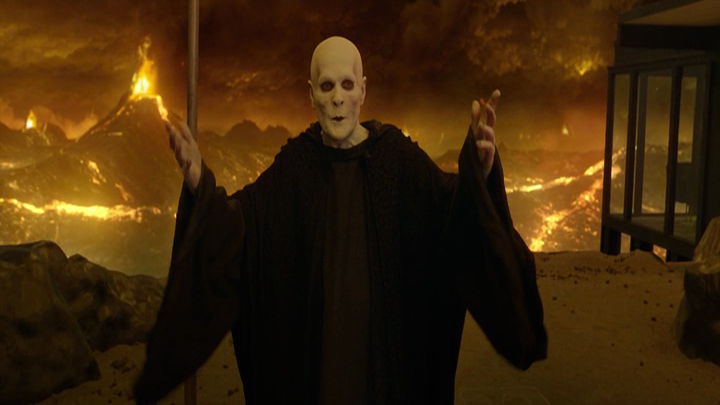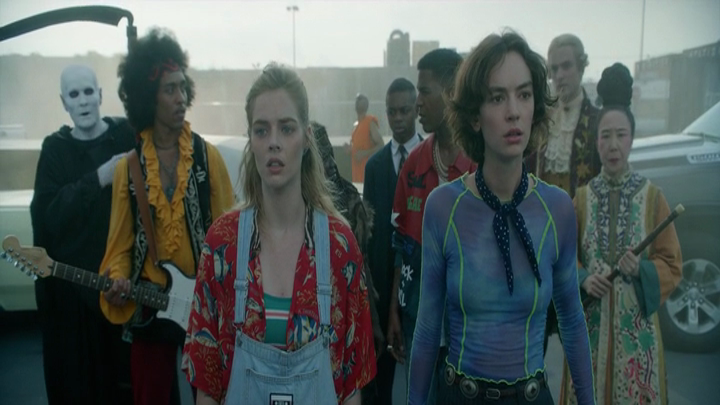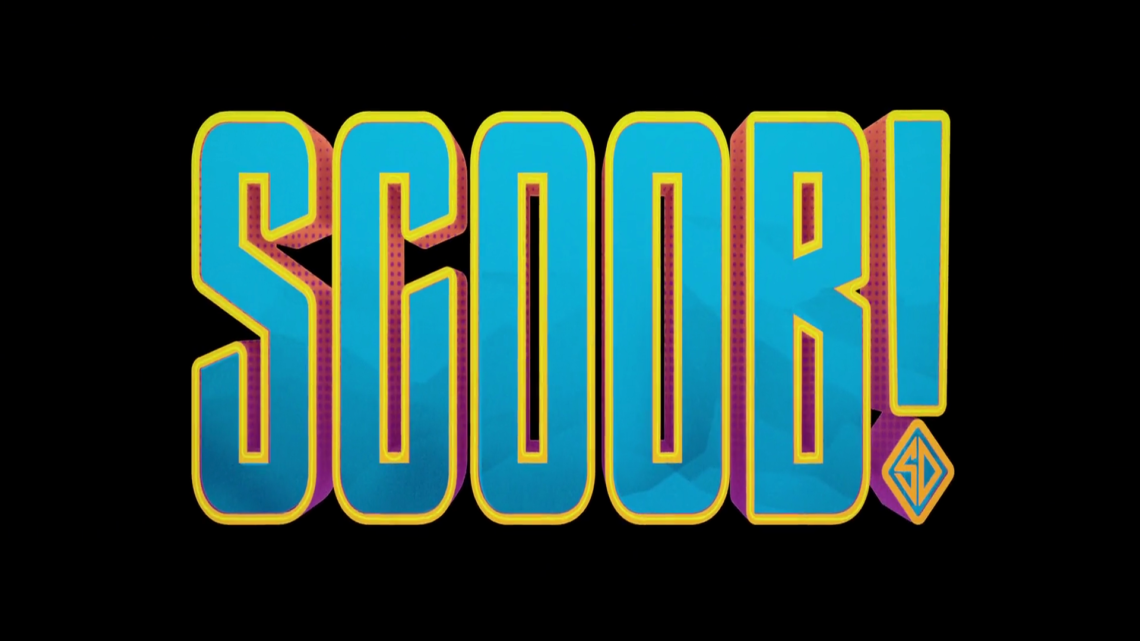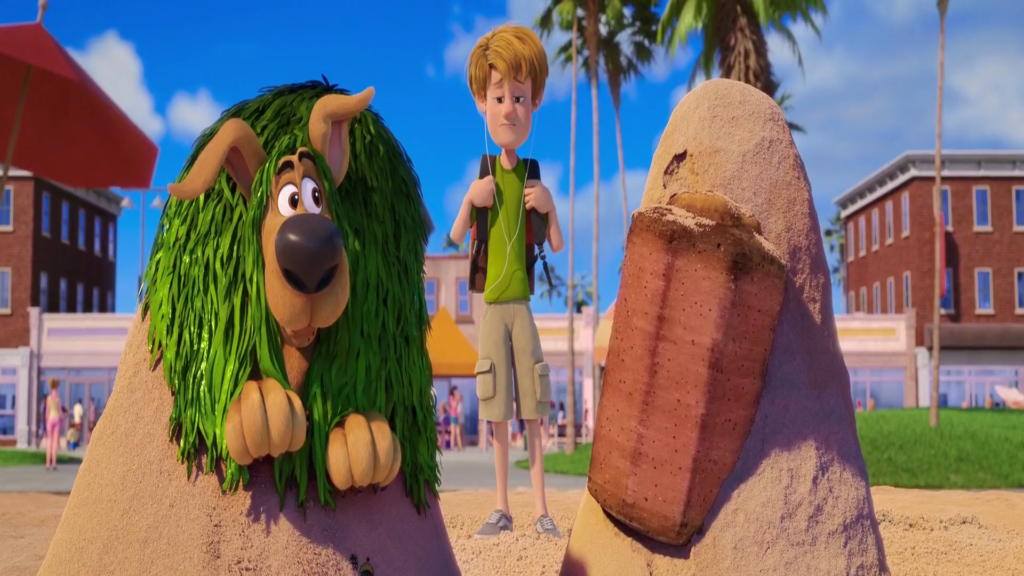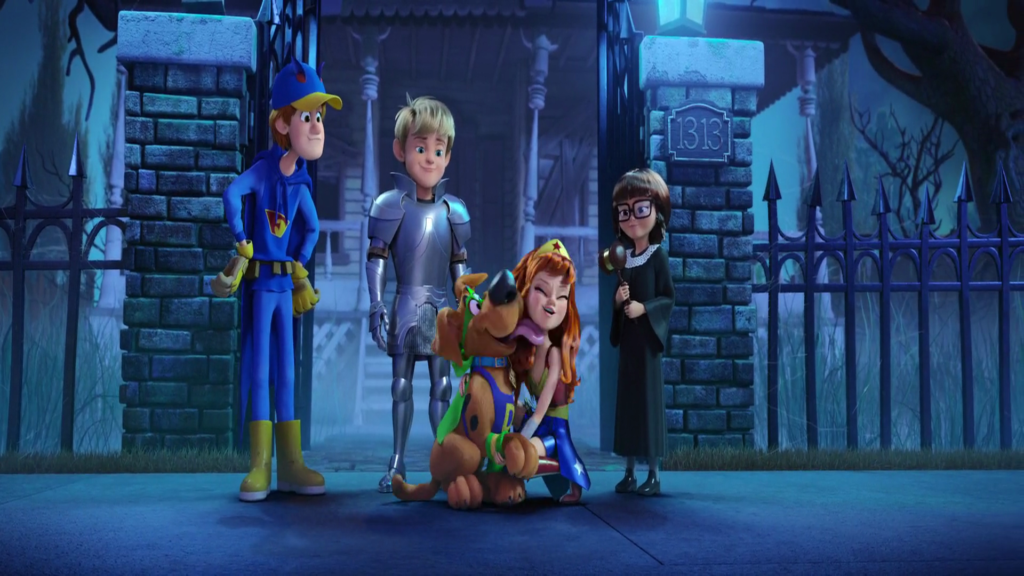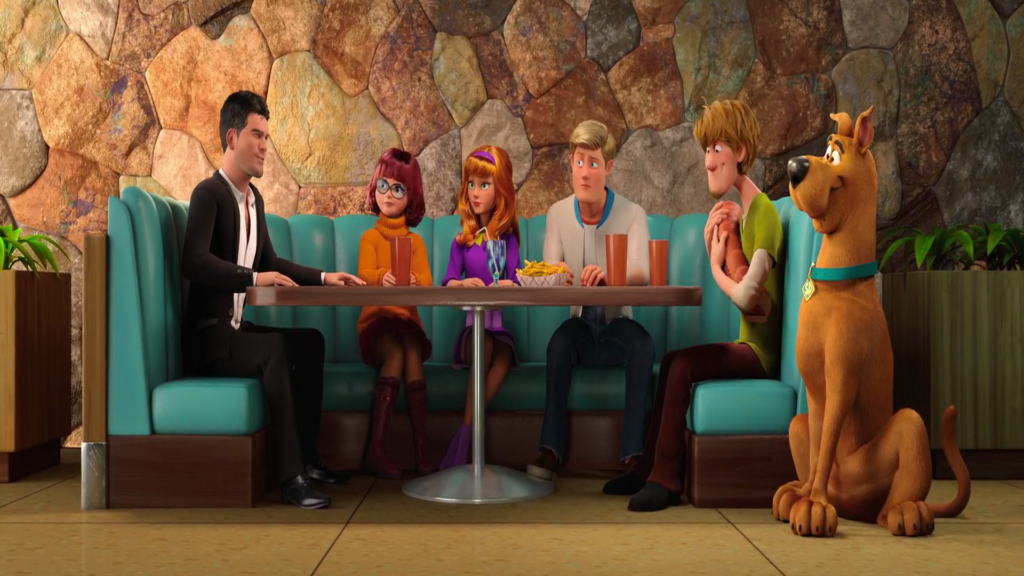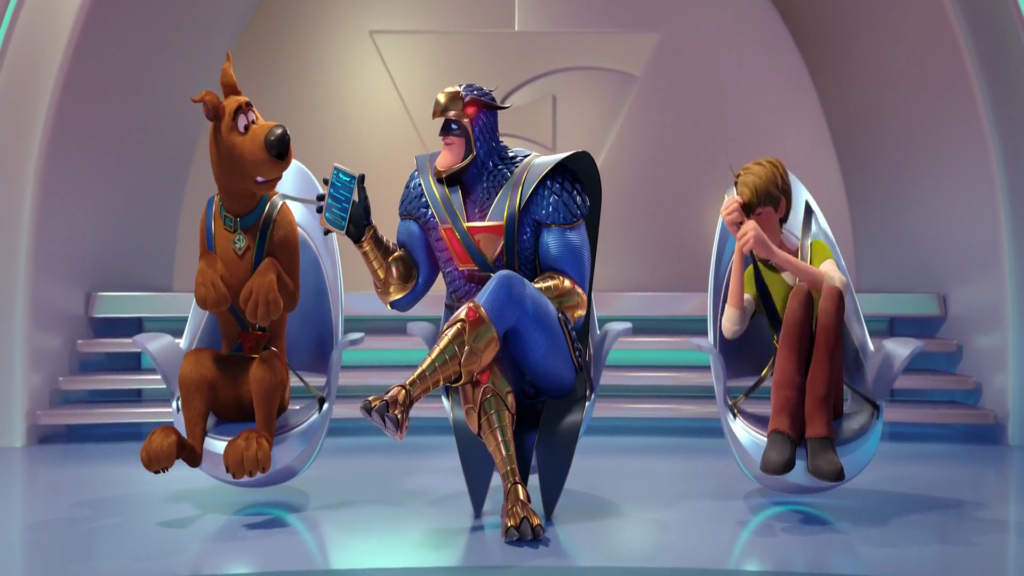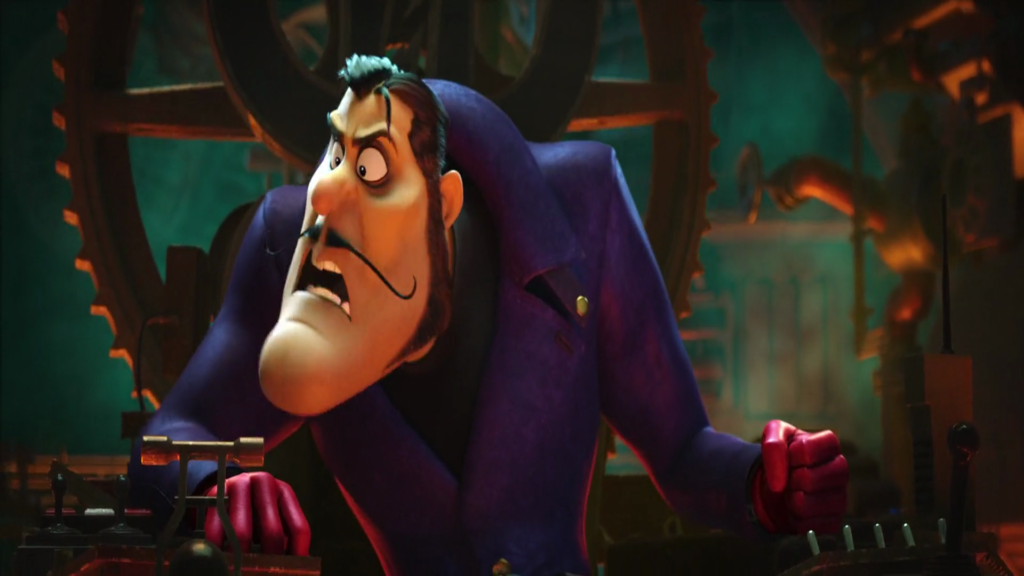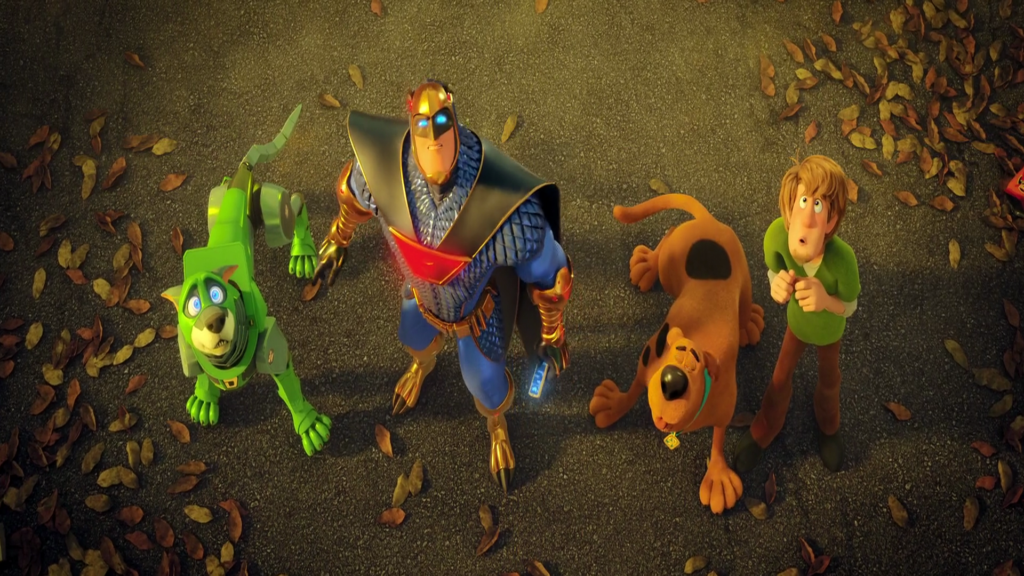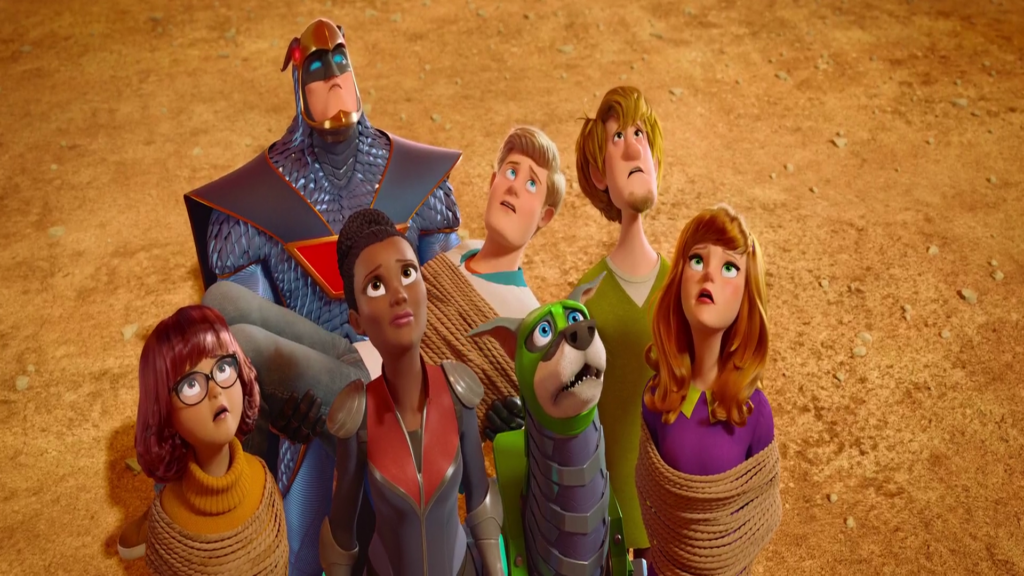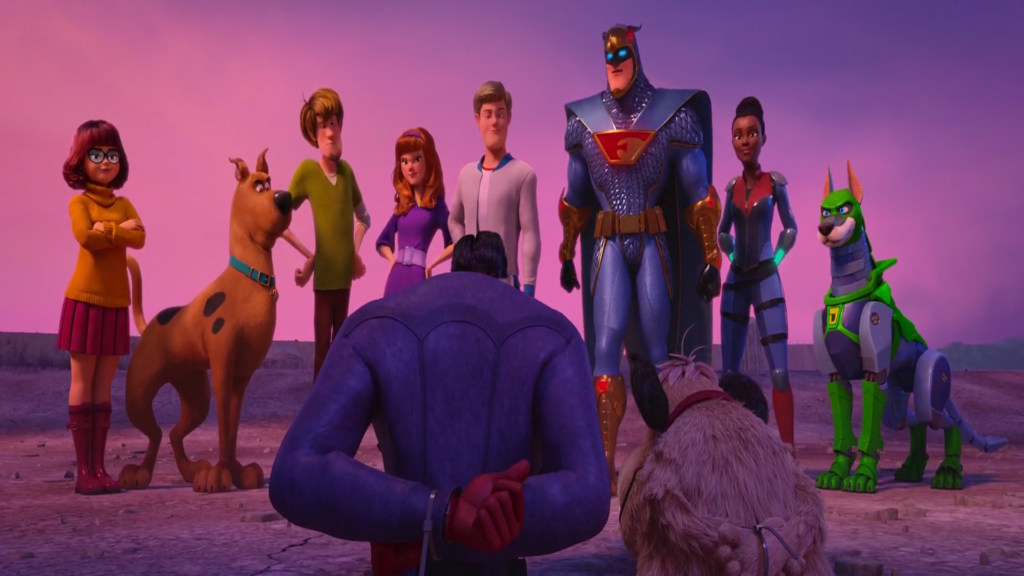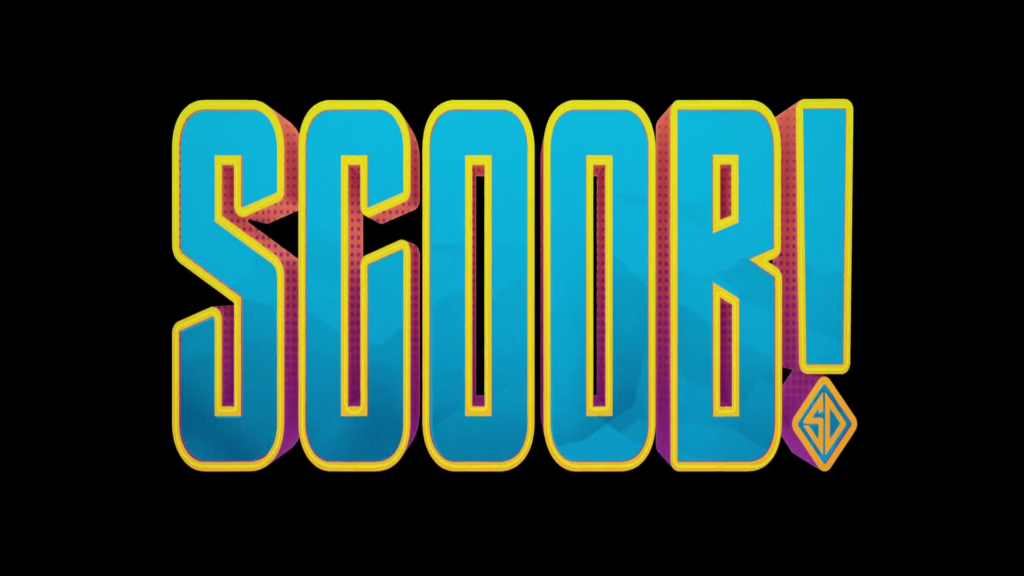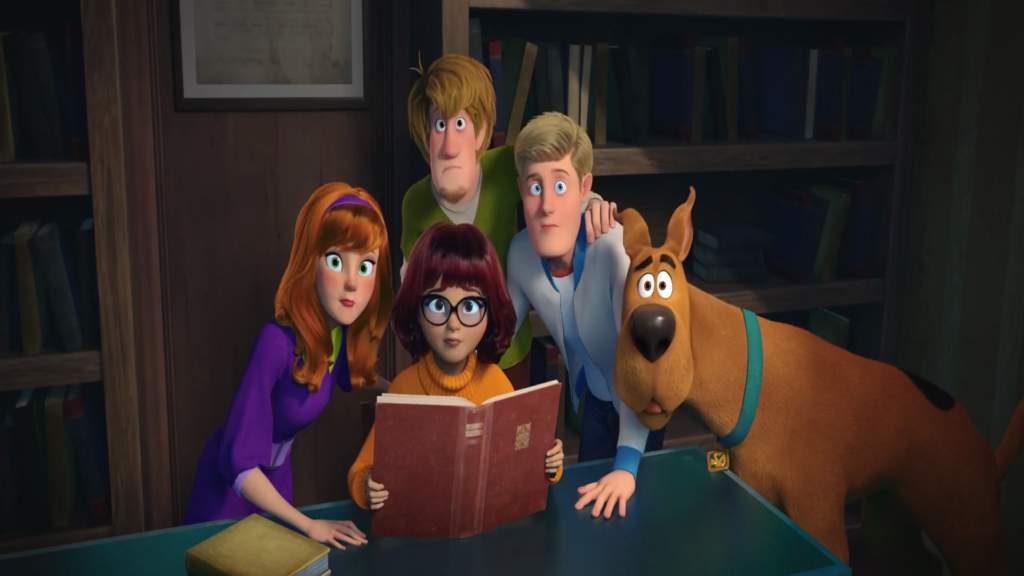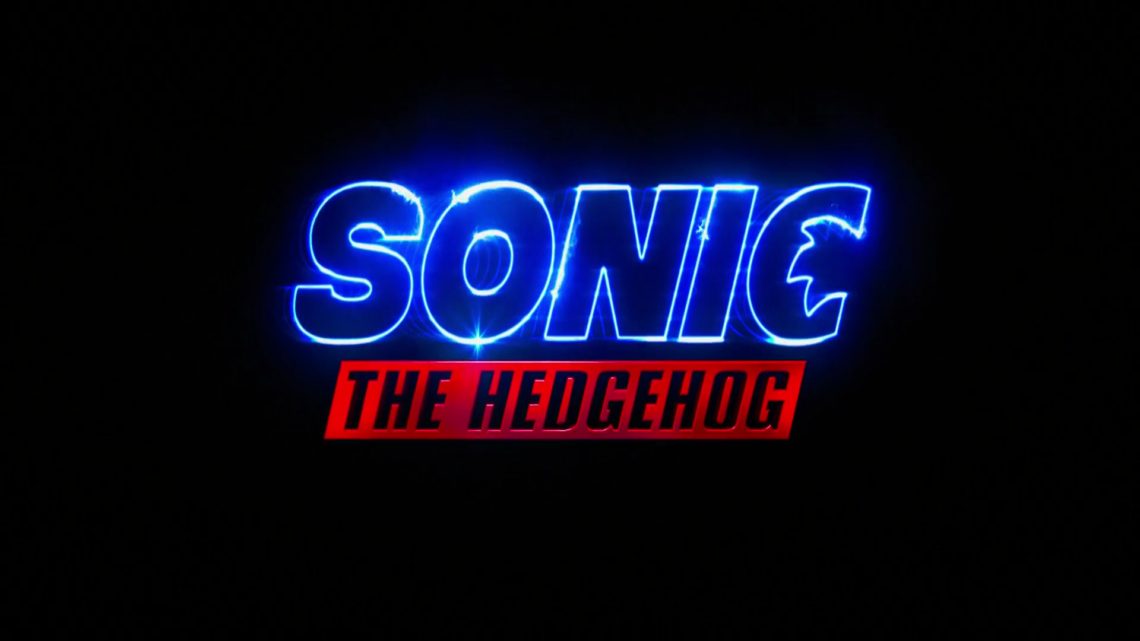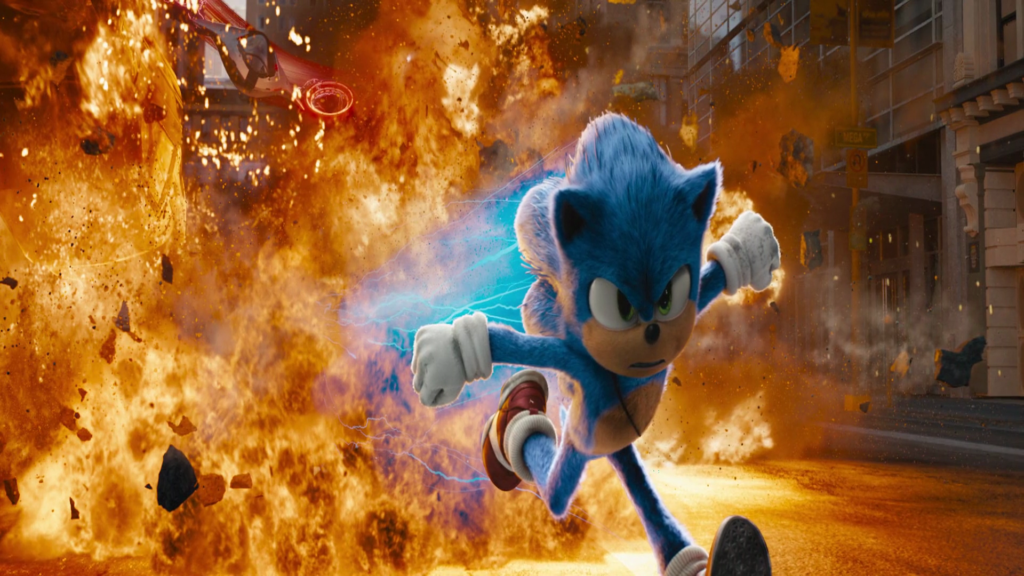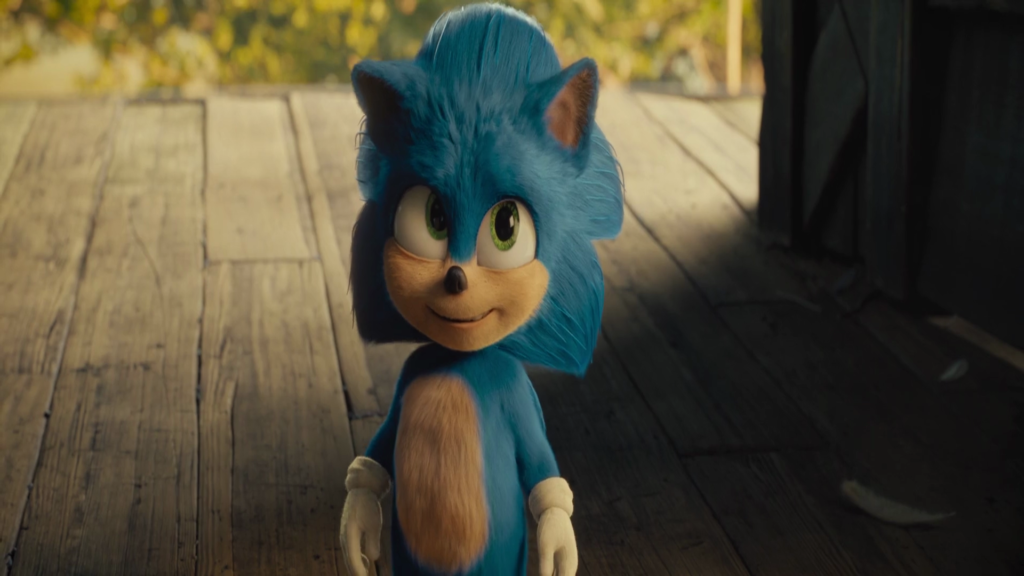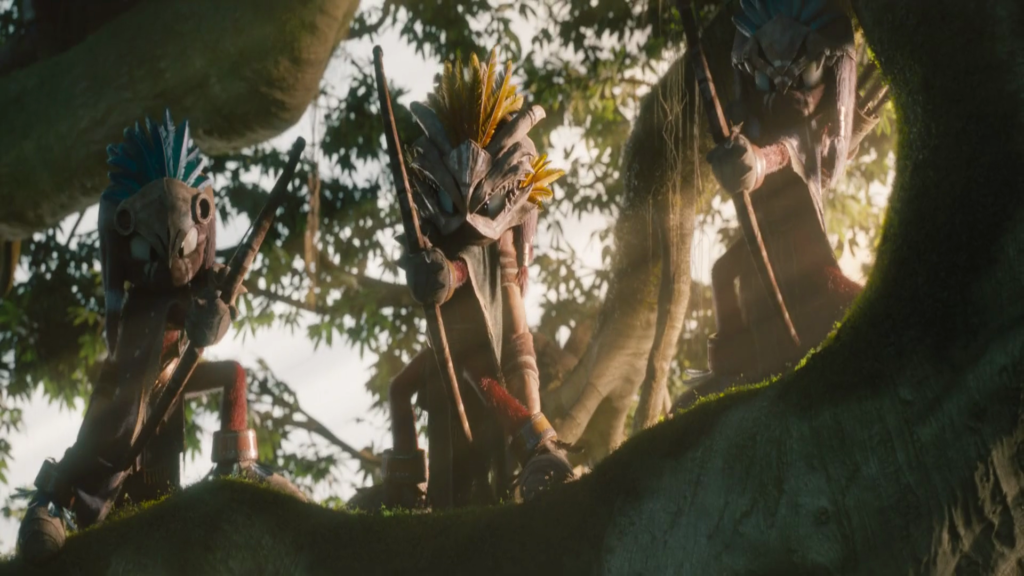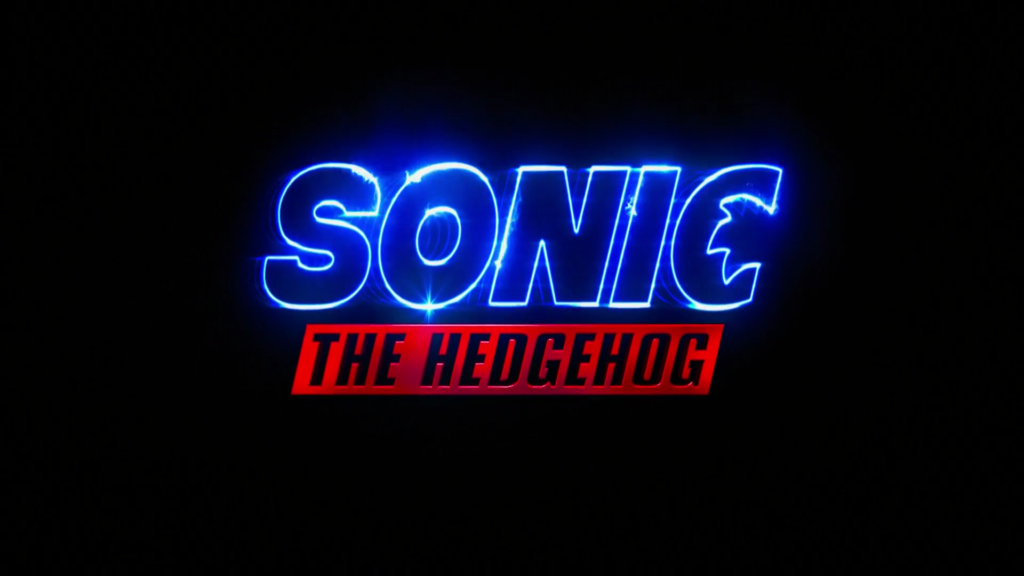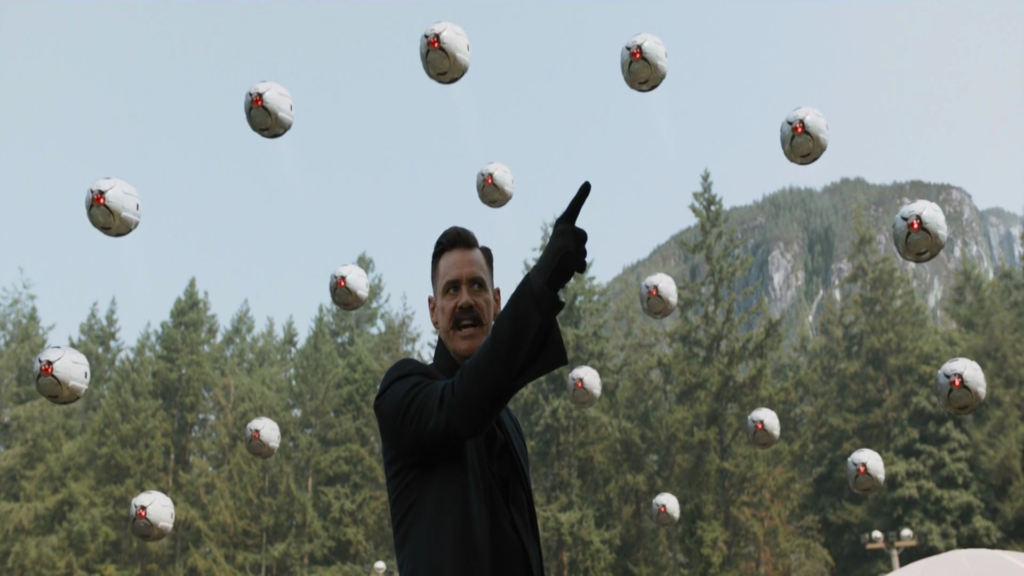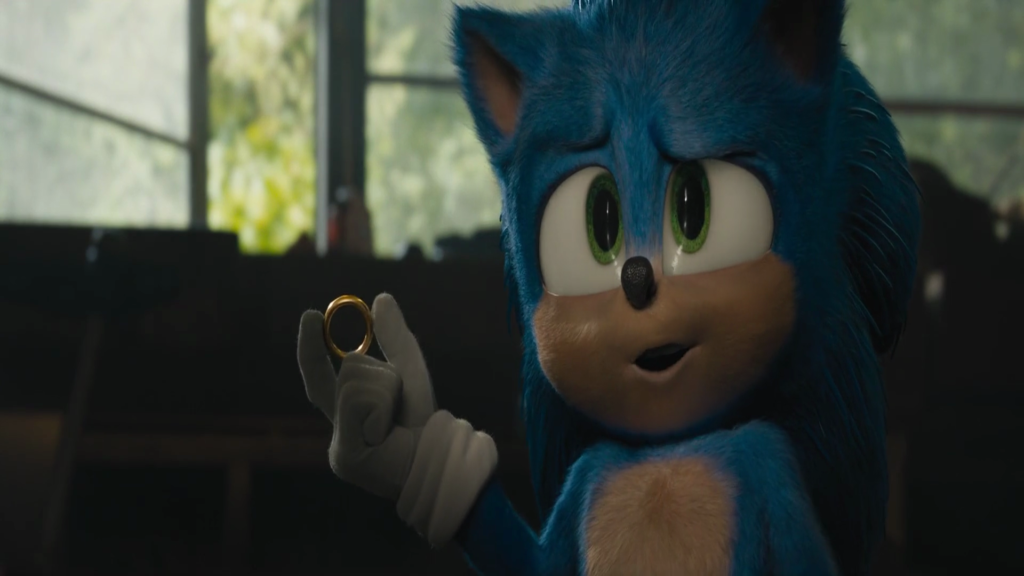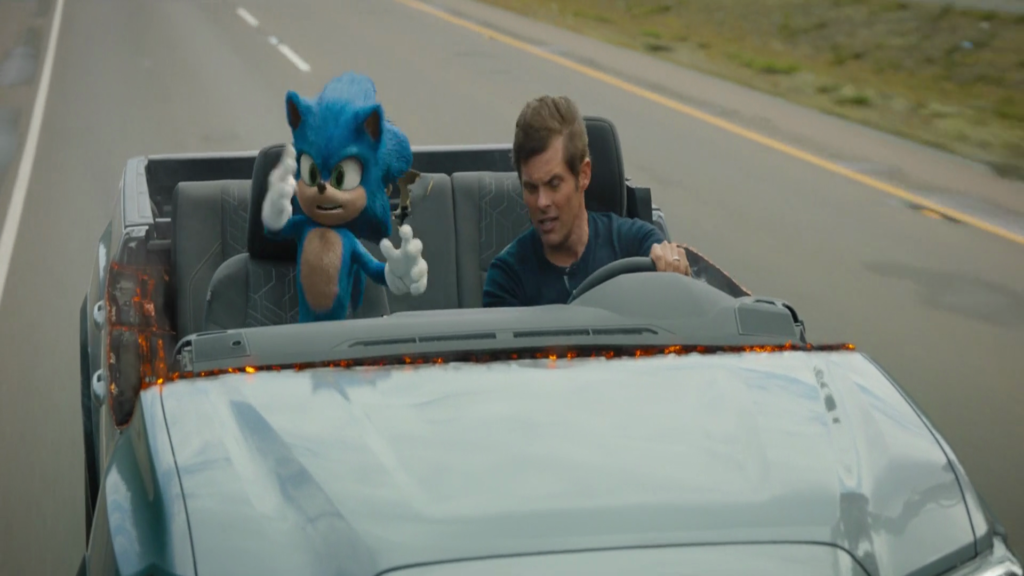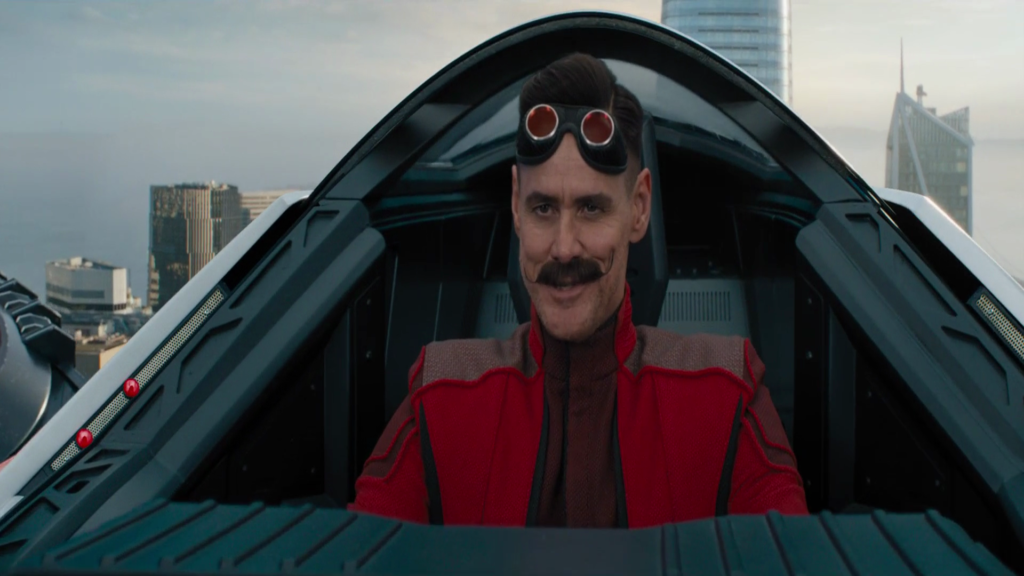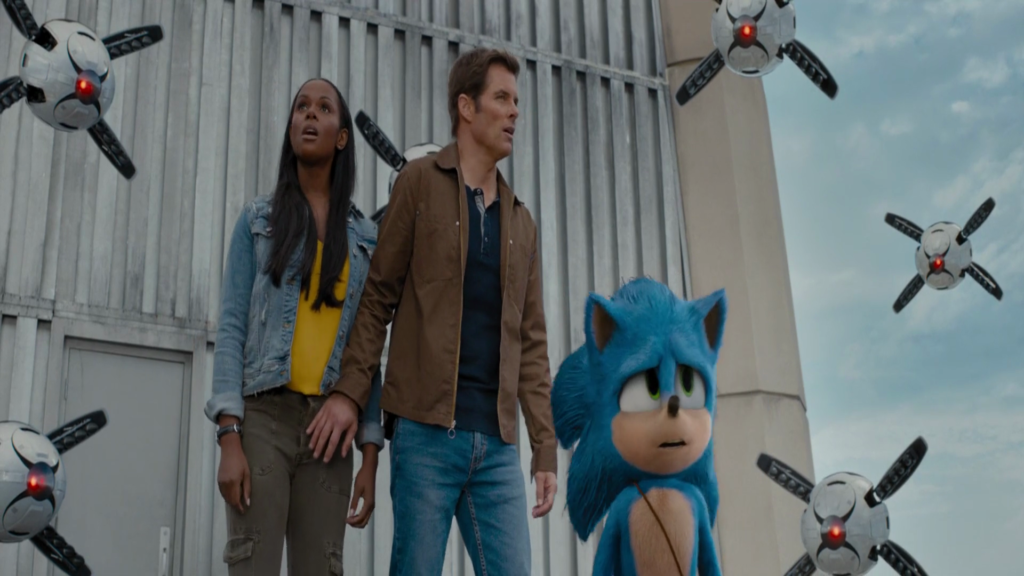-
#615 – Flashback (2020)
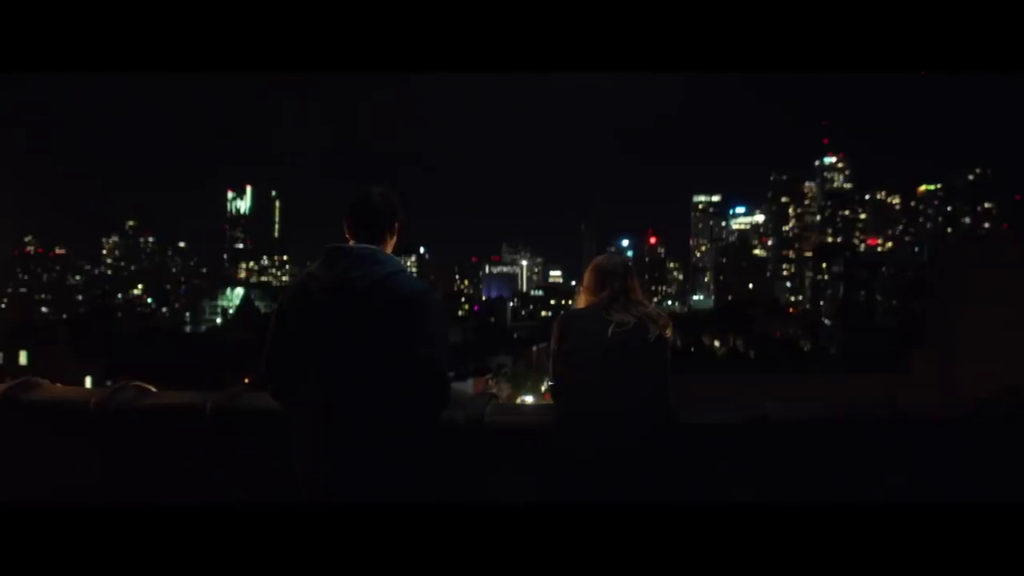
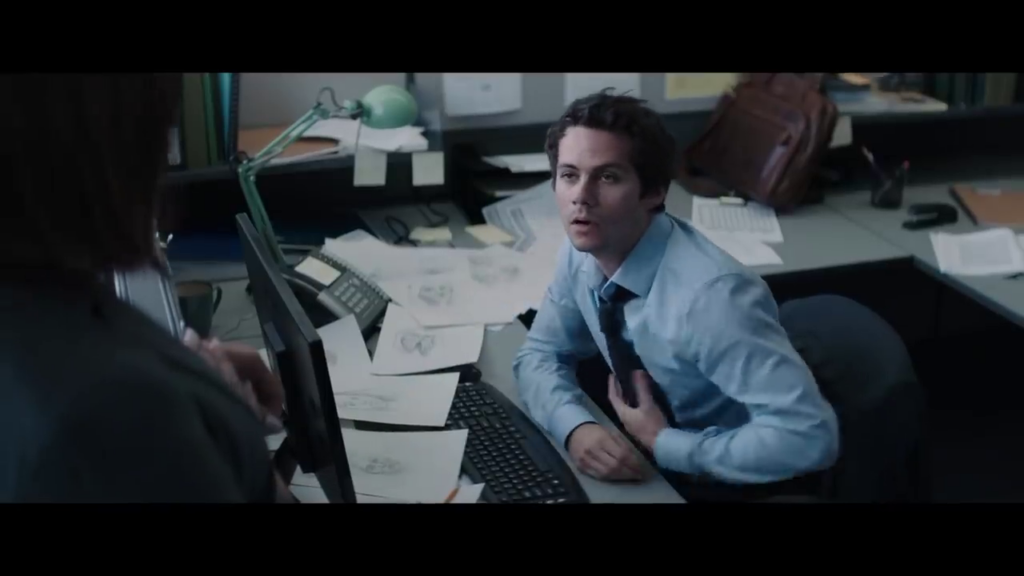
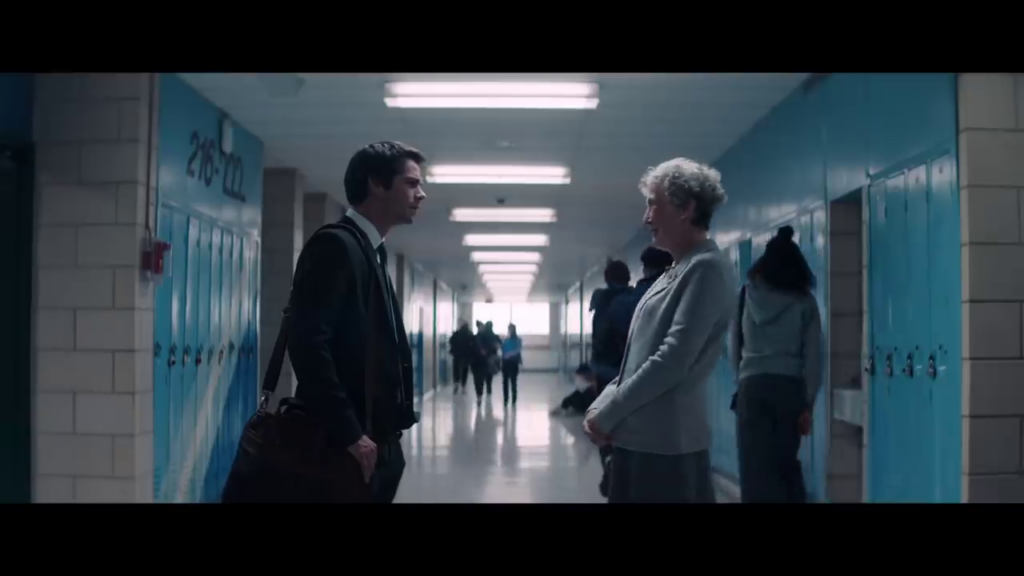
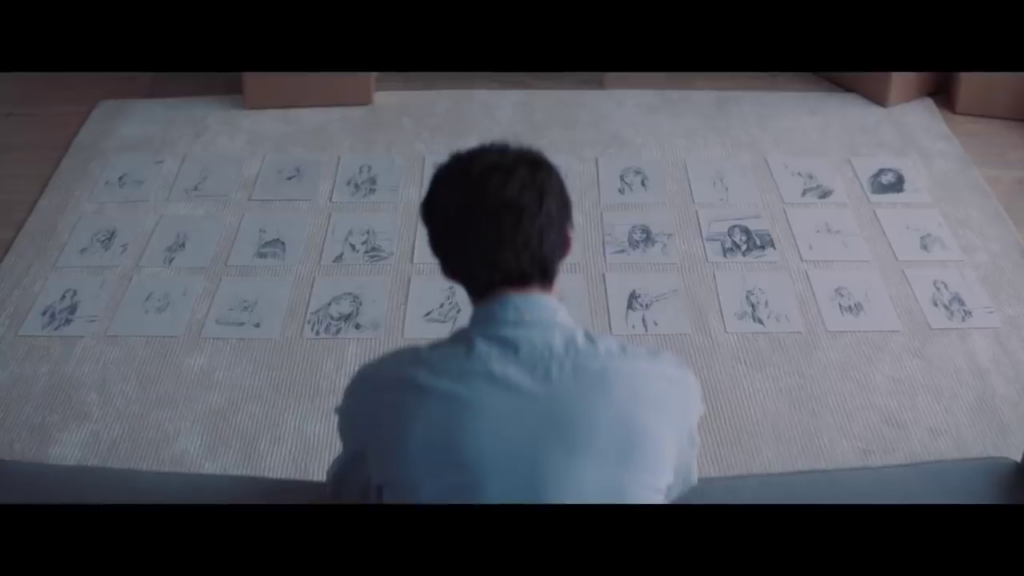
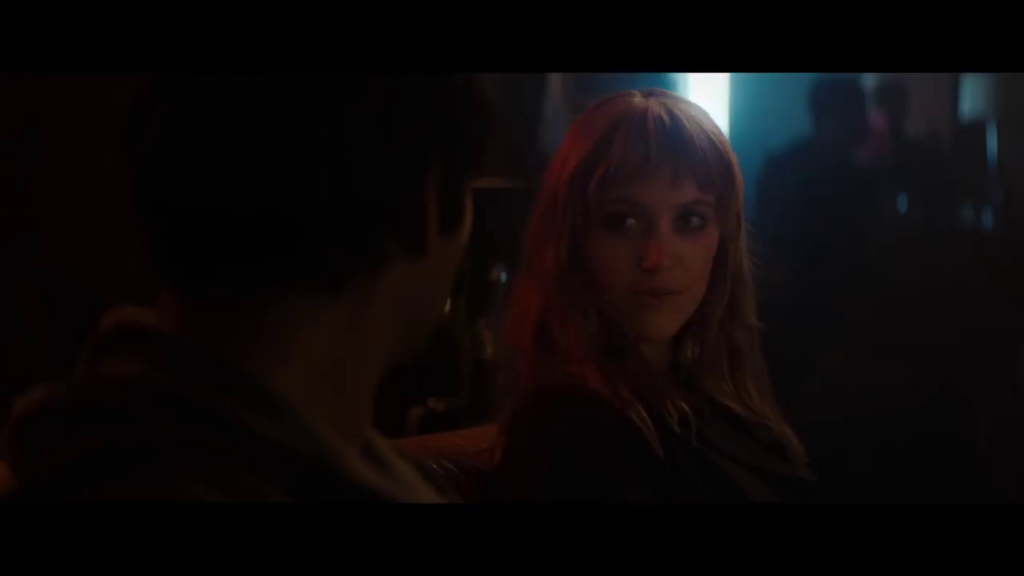
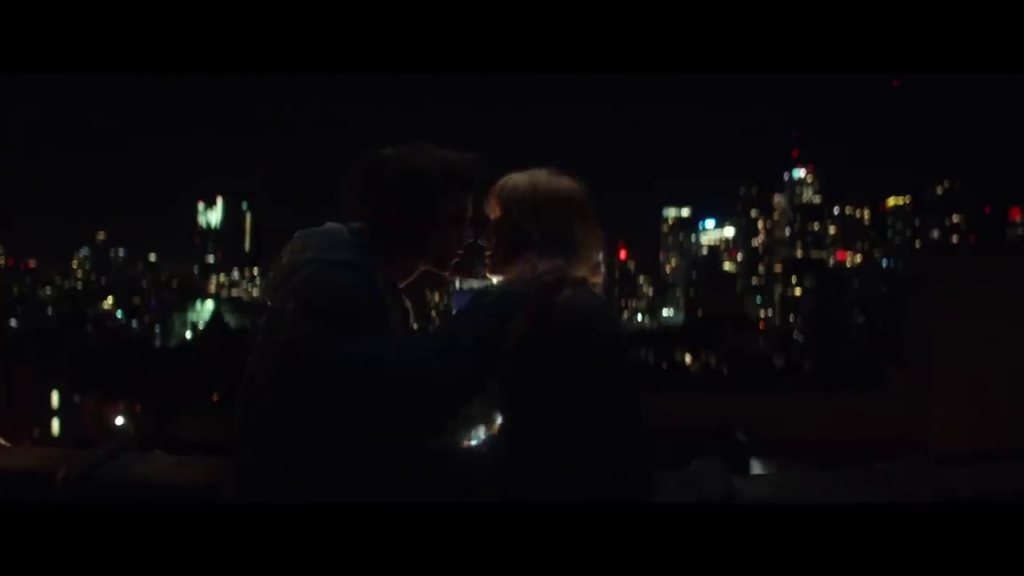
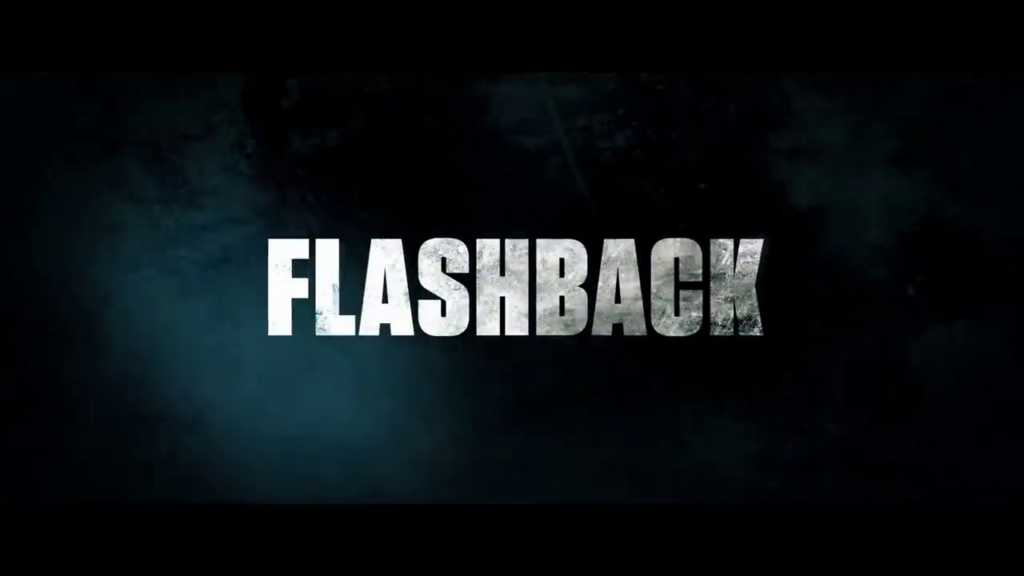
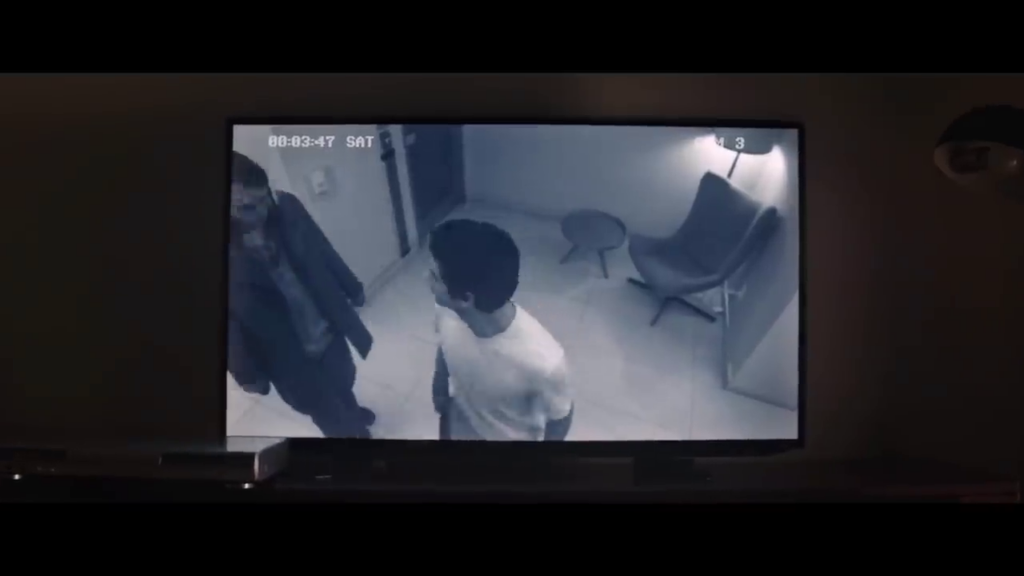
Flashback (2020)
Film review #615
Director: Christopher MacBride
SYNOPSIS: Fred visits his dying Mother in hospital, and begins to get flashbacks about a girl in high school who mysteriously went missing. As he becomes obsessed with trying to find her and get answers, his past, present and future all start to blend into one, as Fred has to make a choice about his life…
THOUGHTS/ANALYSIS: Flashback is a 2020 film. The film revolves around Fred, who lives a fairly normal life with his wife, and typical office job. After visiting his Mother in hospital, Fred starts to have flashbacks about a girl named Cindy, who went missing during his high school days. As his flashbacks become more vivid, and his obsession with finding out what happened to Cindy grows, his sense of reality begins to be called into question, as his past, present, future, and their inherent possibilities begin to overlap and be called into question. Flashback is clearly taking inspiration from films such as Donnie Darko, in which the troubled lead either slowly loses his grasp on reality, or is actually getting closer to the truth, depending on how you interpret it. A complex narrative weaves its way through the story that, honestly, I thought was a complete mess. The film goes overboard with its ideas and pushes the questioning of reality to the point where nothing really matters. Trying to hinge everything around the character of Cindy doesn’t really help things either. Whether Fred’s experiences were all just a bad drug trip, aliens that are forcing humans to experience time linearly when they shouldn’t, or just some sort of breakdown at dealing with the death of his Mother, I honestly felt the film didn’t offer enough for a viewer to draw their own conclusions. Maybe it’s a film that requires multiple viewings to really grasp, but it isn’t compelling enough to make me feel like I would ever want to watch it again.
Fred is a fairly normal, uninteresting character: he has a wife, job and all the normal stuff, and I suppose that’s why him being drawn into this bizarre situation is supposed to be more significant. However, I feel giving him a personality or something interesting about him, a personal connection etc. would have made what happens to him more interesting. Given that his past, present, and future are all blended into one, along with the various possibilities that they can take, you get the sense that nothing matters if everything is possible. You could probably make the film work around that, but again, it just doesn’t. It’s like if you took Everything, Everywhere, All at Once, and sucked all the fun out of it. The supporting characters are again fairly uninteresting, and only really exist as comparisons for how far Fred is or isn’t connected to reality.
There are moments where the film does get it right, the ending has an emotional impact, but these aren’t enough to bring the film together. The ending where Fred decides he “can’t follow” Cindy and falls back to his normal linear life is an odd one that doesn’t really feel justified, and makes the whole experience feels pointless. Maybe it’s a message of accepting what you have in the face of all the other possibilities, but this doesn’t feel earned. Overall, Flashback does it’s best as a mid-sized film, but a sense of overambition and inability to engage or entertain in the face of it’s overwhelming possibilities leaves it mostly dull and without consequence, and overshadowed by the films it is clearly inspired by (Donnie Darko, Matrix etc.). Maybe someone can appreciate it, and they apparently do, given that the film’s scores and reviews are not completely awful, but it’s definitely not for me.
-
#564 – Chronical: 2067 (2020)
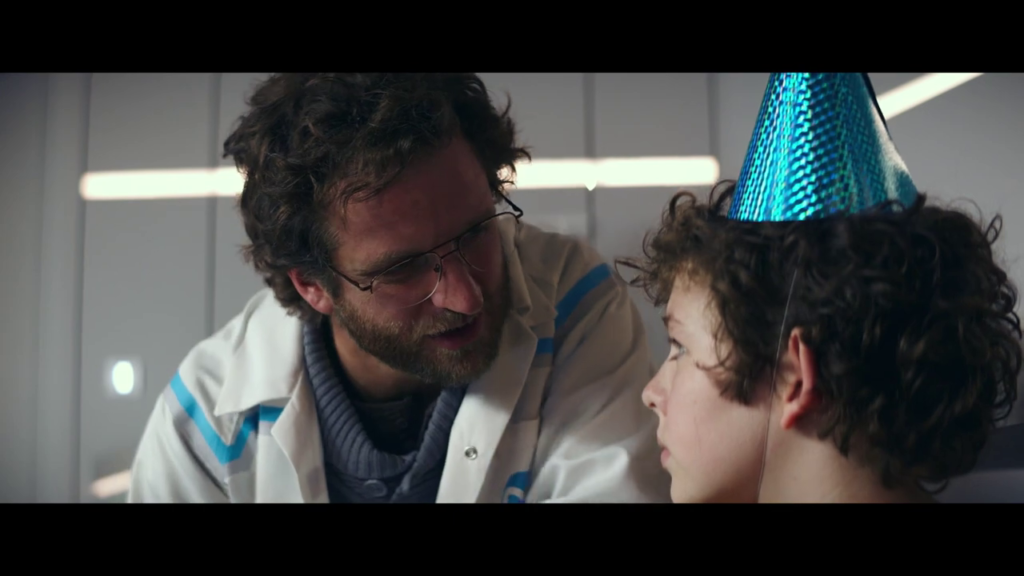
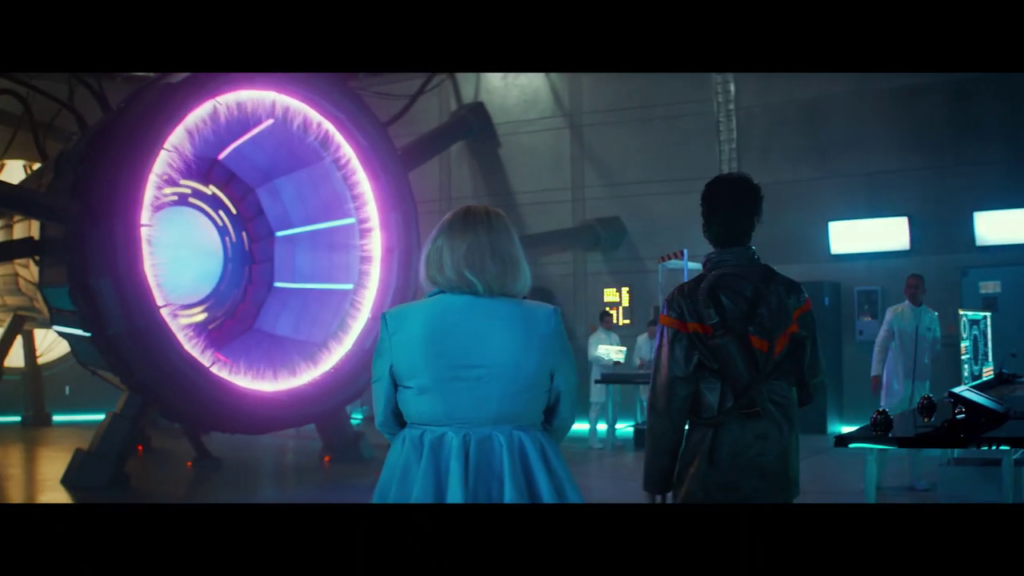
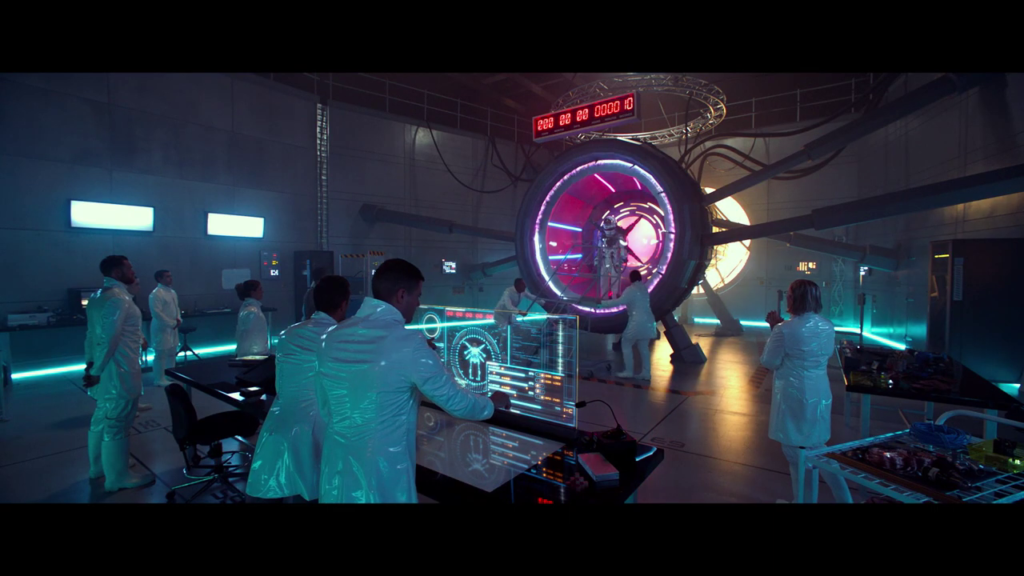
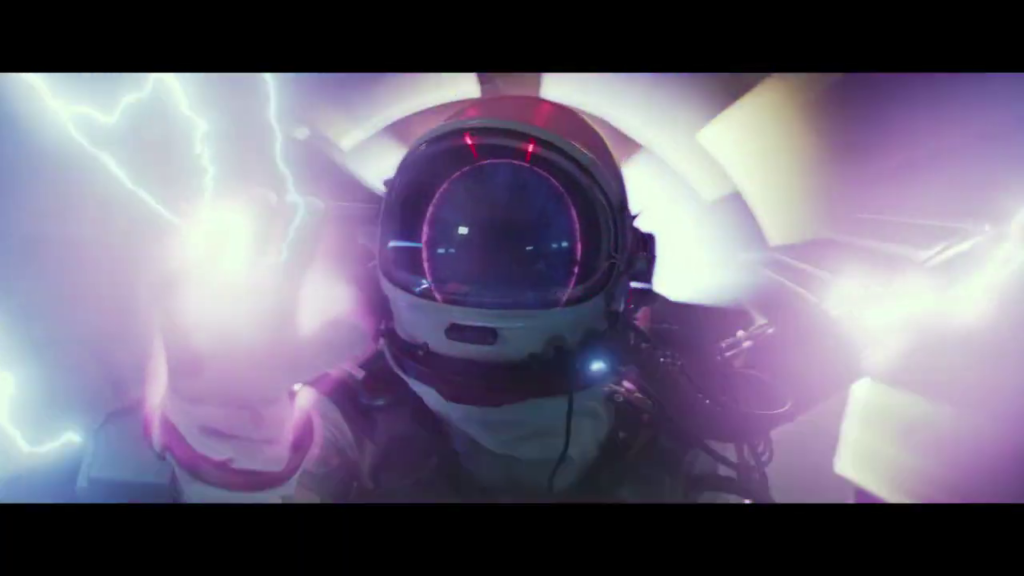

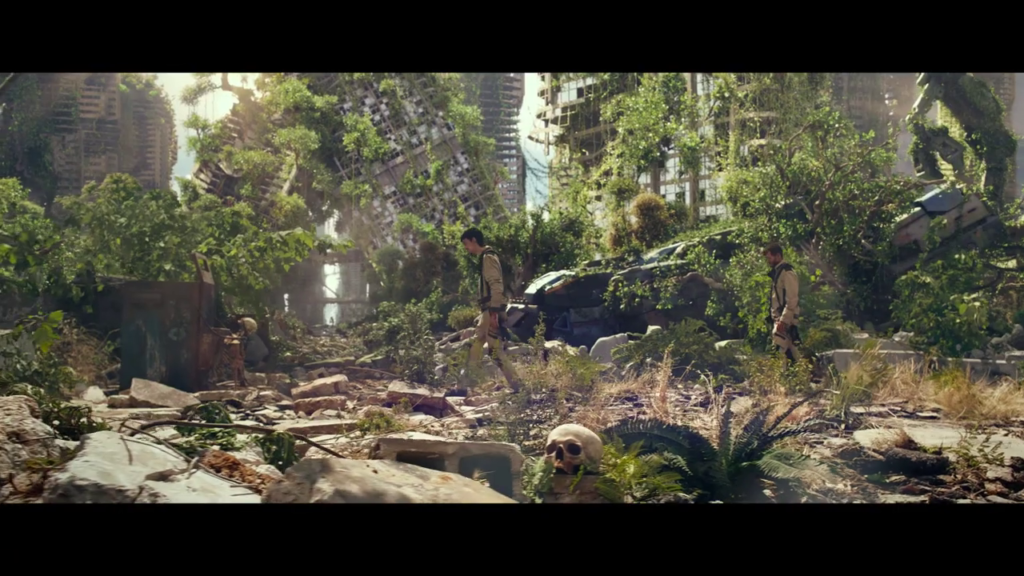
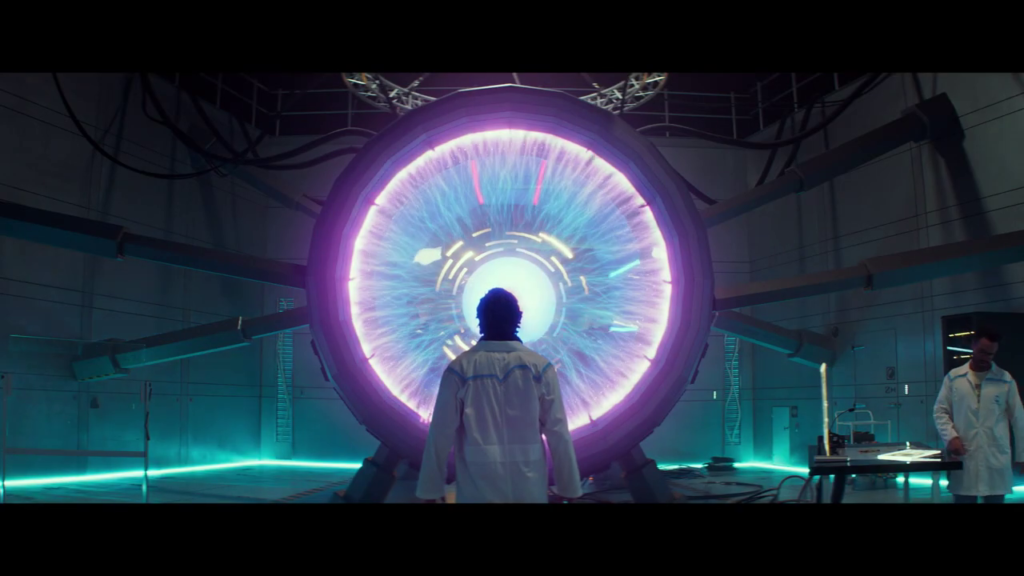
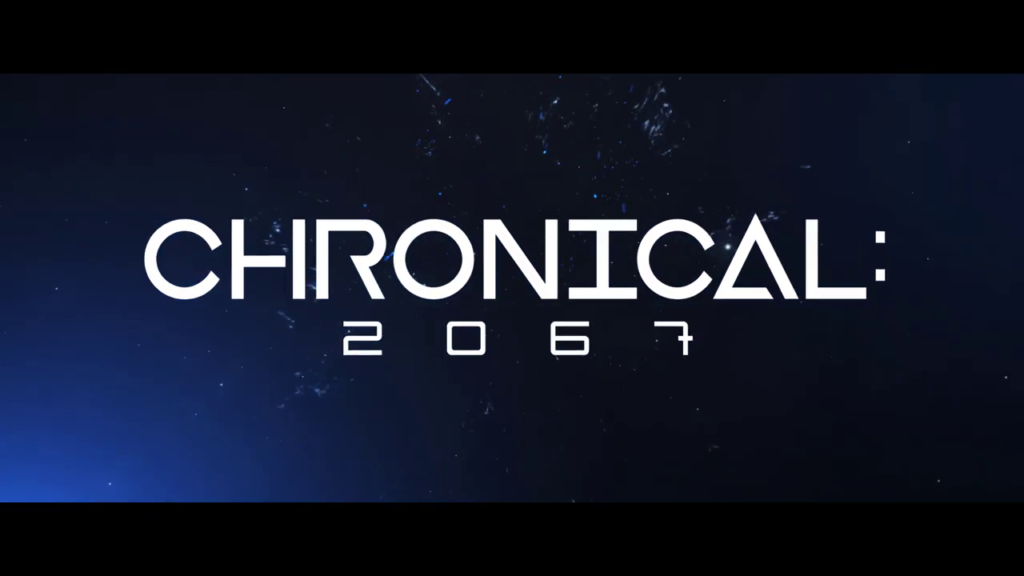
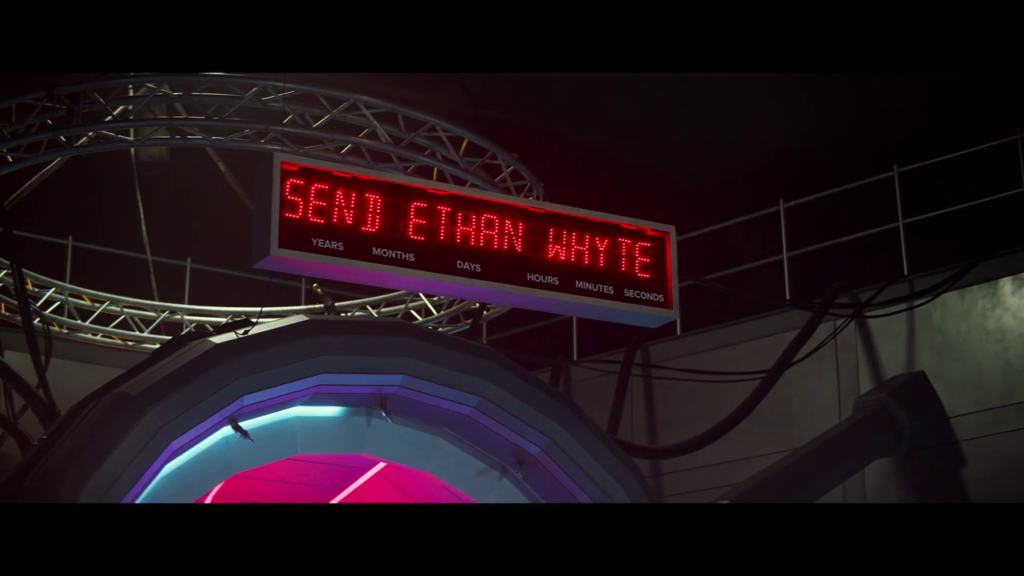
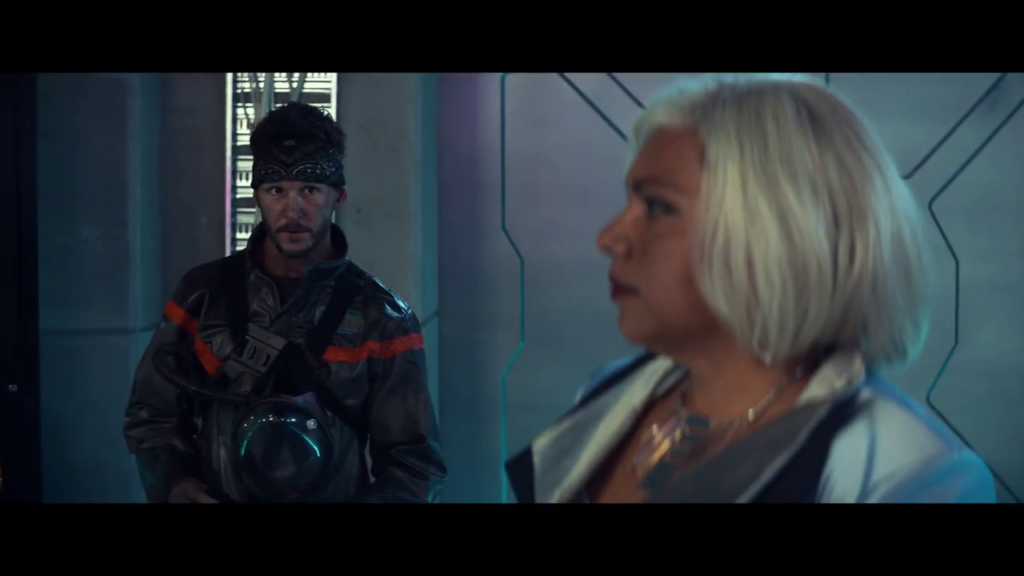
Chronical 2067 (2020)
Film review #564
Director: Seth Larney
SYNOPSIS: In the year 2067, Earth has suffered an almost complete ecological collapse. Humans survive only using synthetic oxygen, which has a side effect of making people sick. The only hope seems to be a top secret project by Chronicorp: a time machine that can travel into the future, where there is hope a cure can be found. However, the time machine has sent only one message through since it was activated: “Send Ethan Whyte”…
THOUGHTS/ANALYSIS: Chronical 2067 is a 2020 Australian sci-fi film. It is set in the year 2067, where Earth has undergone complete ecological collapse, and all plant-life has been wiped out. Humans only survives by breathing synthetic oxygen, which in turn gives them a deadly disease they call “The Sickness.” Ethan Whyte, a lowly technician, is called to Chronicorp headquarters where he is offered a job that apparently will save humanity: to travel to the future in a time machine to find a cure for The Sickness and bring it back, as the time machine has only sent a message from the computer that stated “send Ethan Whyte.” Since this indicates that someone is alive at the other end, it is assumed that the future has a cure for the sickness, since someone would have had to have sent the message, and Ethan agrees to go because his wife also has the sickness. The film attempts to create a lot of suspense and mystery surrounding the fate of the world, the message sent, and the disappearance of Ethan’s Father, but the main problem is it never really comes together, and neither are the situations Ethan is thrown into ever filled with that atmosphere. It’s fairly obvious that there is something more going on than has been revealed, but it never really builds up that mystery and suspense to keep the audience guessing. Typical story elements such as an estranged relationship with a Father, for example, further cement a feeling that you’ve seen it all before.
The characters are also fairly typical, and even though there’s an attempt to build them up, there’s not enough of a hook to make them solid pillars to the film. Coupled with some flat acting here and there, it overall just feels like it’s difficult to immerse yourself in their world and the setting. There’s some nice visual effects that are able to put you more in the main characters shoes, but there’s never enough to balance out the lows. Overall, there’s not much else to say about Chronical 2067: it presents a fair amount of mystery and a basic amount of intrigue, but never the suspense or drama that it needs to in order to hook a viewer into the mystery. There’s a constant feeling you’ve seen a lot of it before, and done better. It’s not terrible, and there’s some good ideas, but there’s perhaps too many of them, and they never properly cohere into a strong narrative, or the sheer multitude of them just make the characters walking tropes that splinter off every which way, so they too never become individual personalities that can drive forward the story. A classic case of good ideas, bad execution.
-
#539 – Alien Xmas (2020)
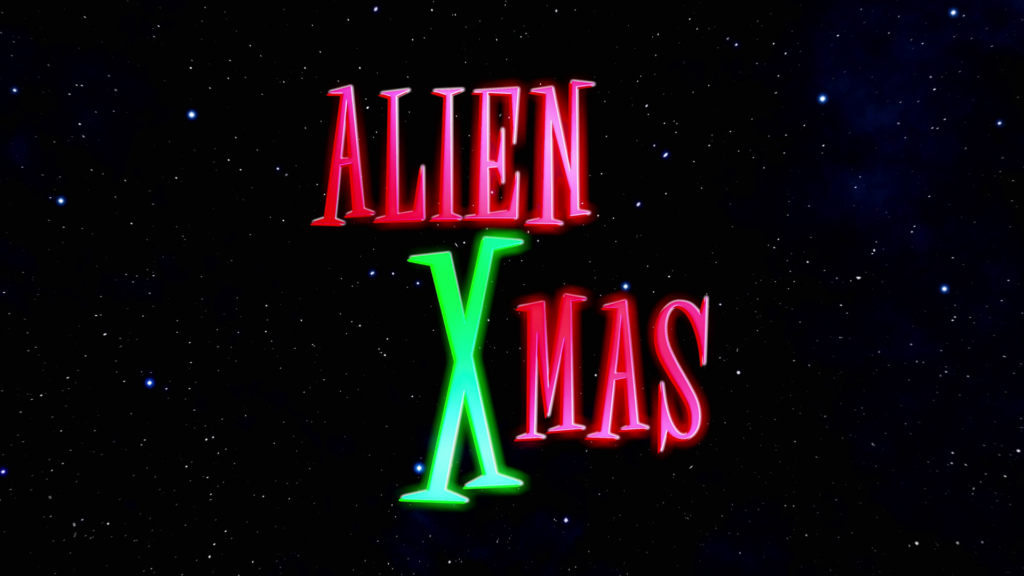
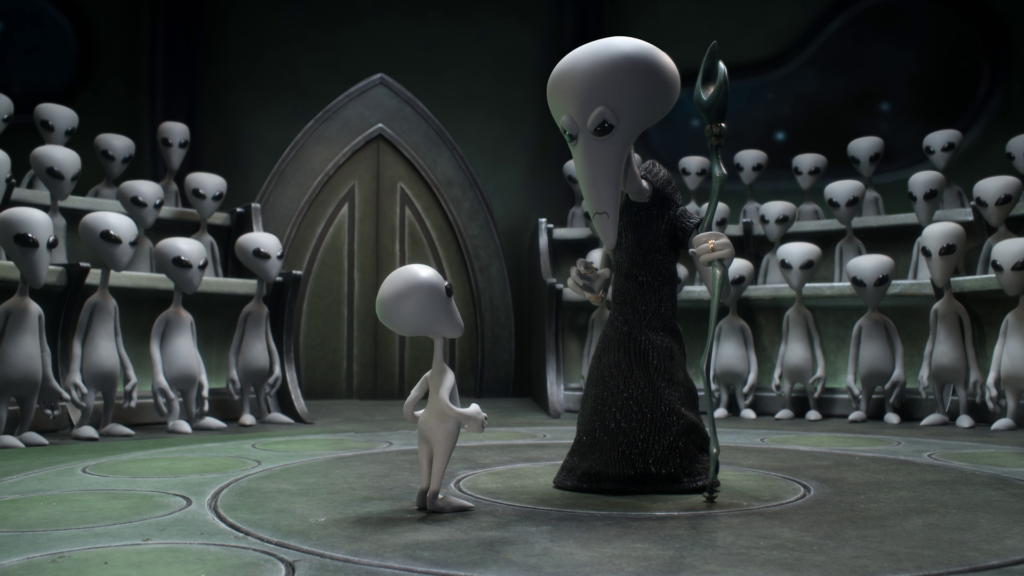
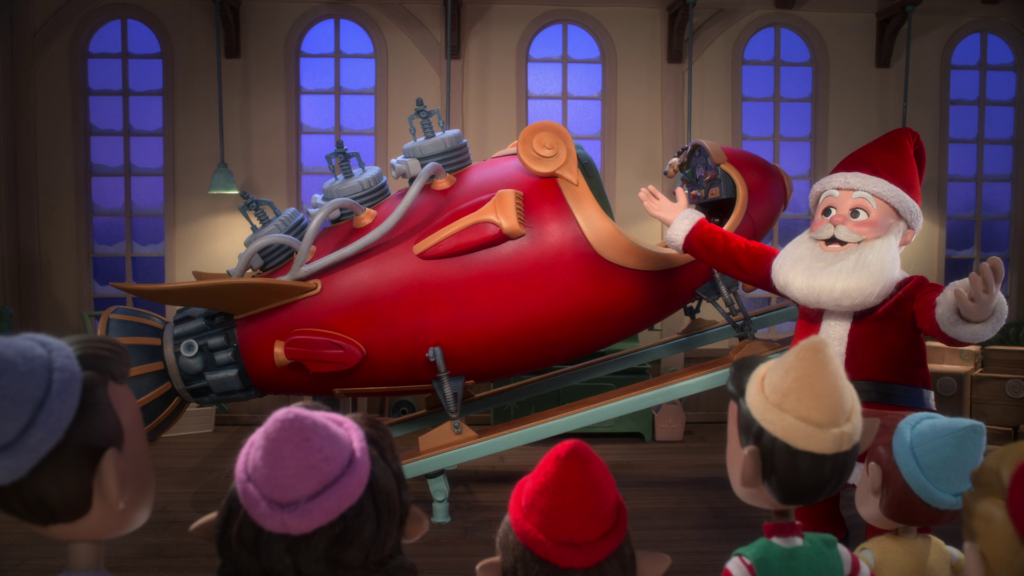
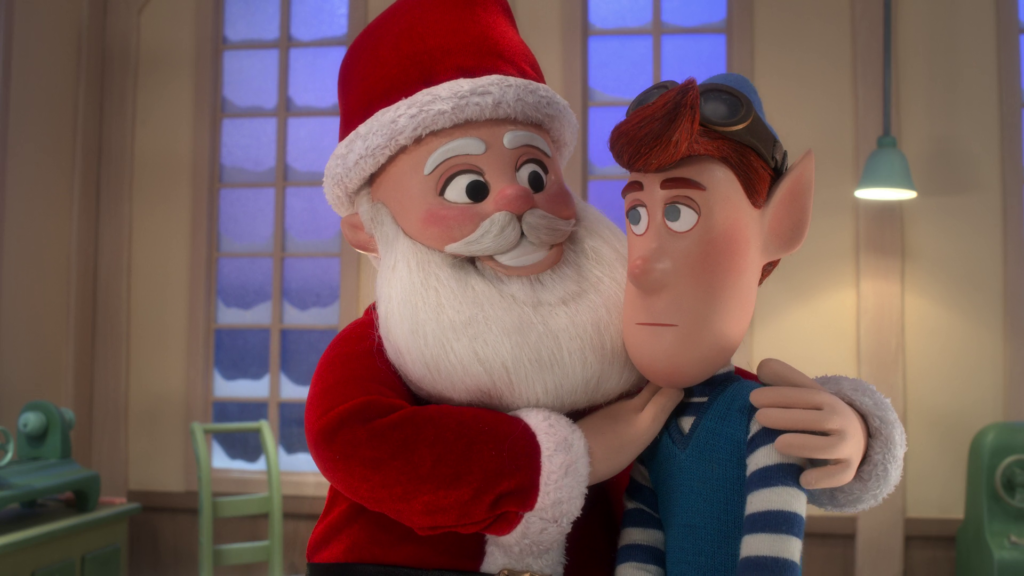
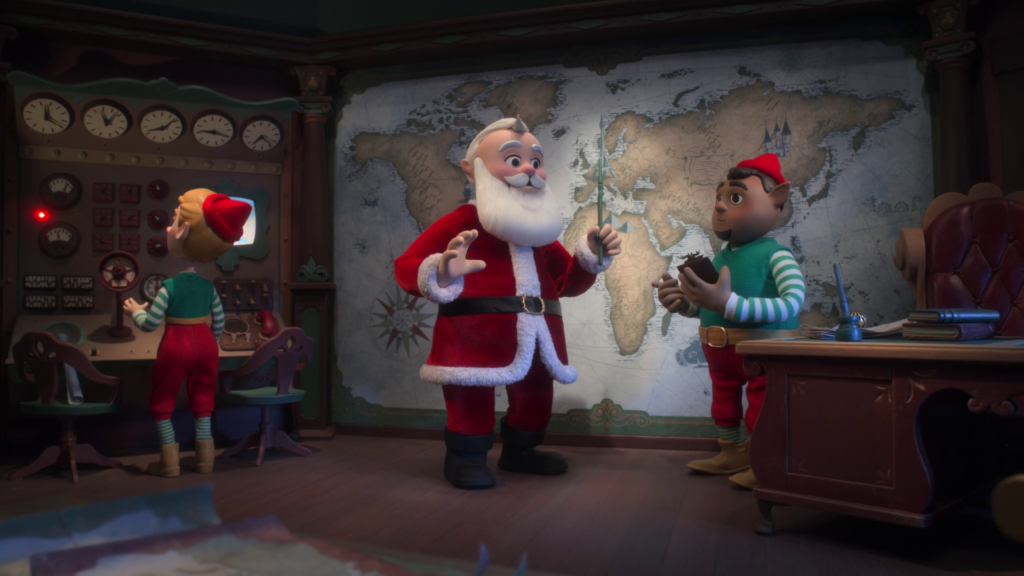
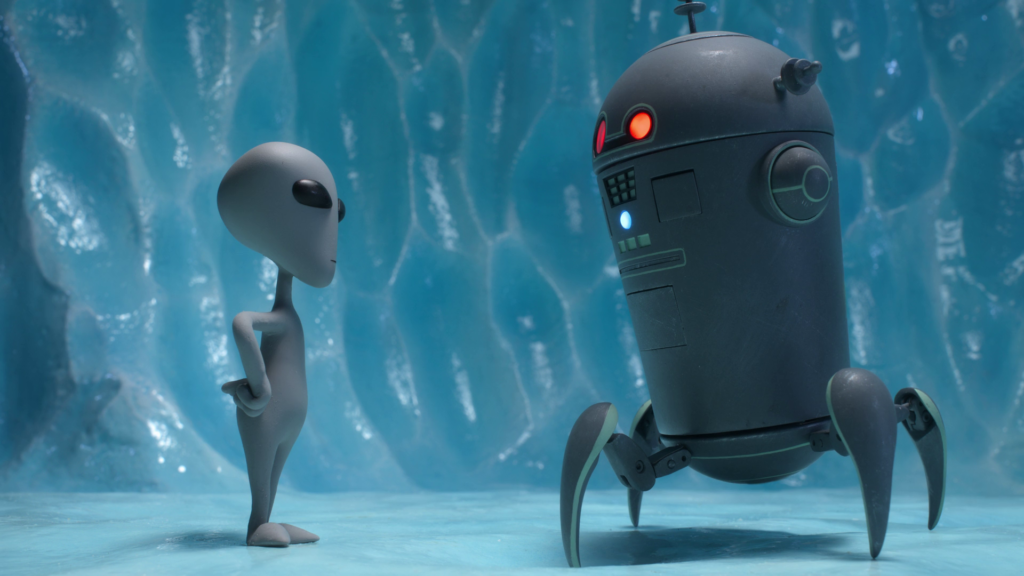
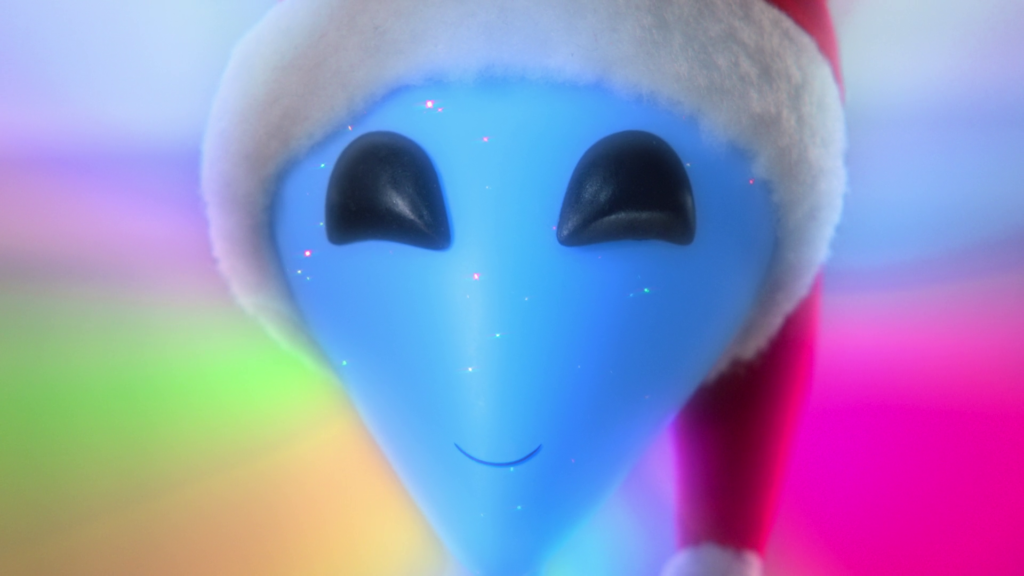
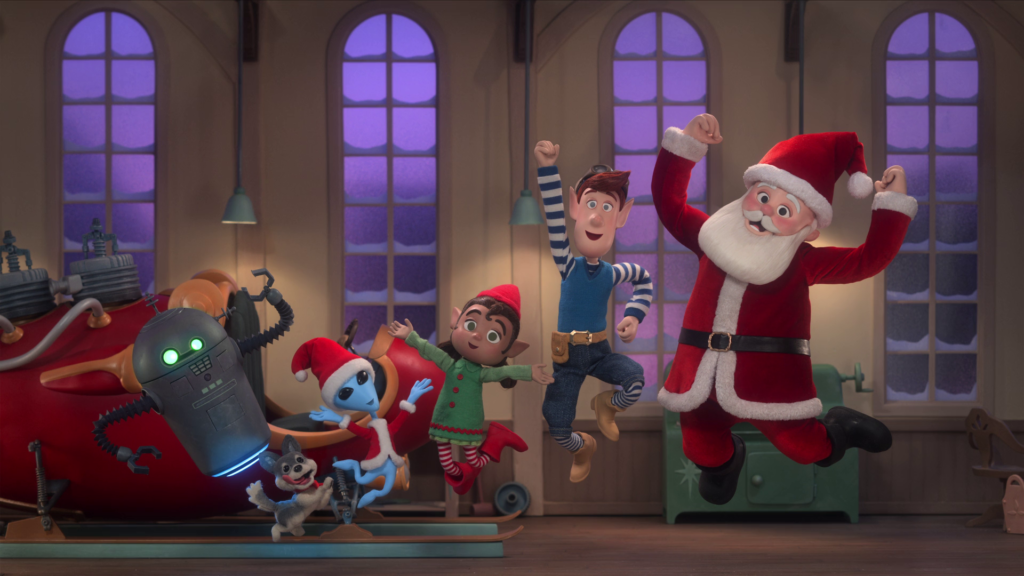
Alien Xmas (2020)
Film review #539
Director: Stephen Chiodo
SYNOPSIS: An alien race called the Klepts, who take everything from the planets they visit, have set their sights on Earth next. They send X to the north pole to build an anti-gravity machine that will send everything on earth into space for the Klepts to correct. However, X has landed just in time for Christmas at the north pole, and Santa is busy preparing for the big day…
THOUGHTS/ANALYSIS: Alien Xmas is a 2020 Christmas film. The plot centres around an alien race called the Klepts that plundered their homeworld of all resources, and now move through the galaxy taking everything they can from other planets (get it? Klepts?… Kleptomaniacs?…). The Klepts have set their sights on Earth as their next target, and their leader sends X to earth to plant an anti-gravity device at the North Pole, which will turn off gravity and send everything into space; making it easy for the Klepts to take. Unsurprisingly, the plot of the film has X have a change of heart about giving rather than taking, and the rest of the plot points involve a lot of the typical plots surrounding Santa getting ready for Christmas, A Dad working too hard and neglecting his family, and the true meaning of Christmas. Nothing you haven’t seen before, but this film is really aimed at young kids, so it has to have all the typical Christmas stuff you’ve probably seen a hundred times before, but they haven’t. There isn’t anything really for older viewers to get or enjoy, so it really is just aimed at the young kids. The “crazy” twist (as Santa calls it) that this is a Christmas story that includes aliens doesn’t really make it enough of an interesting twist for those who have seen these films many times before.
With a runtime of forty-four minutes, the film doesn’t fluff itself up with anything it doesn’t need: it tells a Christmas story with it’s own small twist, but doesn’t offer much else. I’m sure young kids will enjoy it because it’s simple enough to follow, is full of colour, and the stop-motion animation has plenty of expression, but again, anyone who isn’t a young kid won’t find anything new or interesting here.
-
#463 – Alien Invasion (2020)
Alien Invasion (2020)
Film review #463
Director: Yun Xiang Lin
SYNOPSIS: Private detective Xu Siwei is hired by Yang Lin to investigate the disappearance of her Father. They are led to a secret underground facility where they encounter a strange portal to an alien world. Barely escaping the alien horrors within, Xu is haunted by strange dreams that relate to this alien species, and heads to the town where Yang Lin was raised to find answers…
THOUGHTS/ANALYSIS: Alien Invasion is a 2020 science fiction film. The film starts off in a secret laboratory where an experiment on an alien portal goes wrong and a creature escapes into the laboratory, forcing it to be sealed to prevent the alien’s escape into the world. Next, we are introduced to private detective Xu Siwei, who after capturing a thief returns to his home to find Yang Lin, a young woman who wants to hire him to find her Father, who went missing fifteen years ago. The two are led to a secret laboratory where they stumble upon the alien portal from the opening of the film. They manage to escape, but Xu starts having recurring nightmares about the aliens, and seeks to unravel the mystery further by visiting Yang Lin’s hometown, where strange things are happening. The plot of the film is inspired by the Cthulhu and other such eldritch horror, as the alien in the opening scenes shifts its amorphous form and impales people with its tentacles. The film is essentially a science-fiction thriller, attempting to build tension in the mystery it creates and the environments in which it is set. The film struggles to do this successfully because the whole tone of the film is very inconsistent: at the start there’s some more action and quirky light-heartedness, as Xu is clearly emulating Benedict Cumberbatch’s portrayal of Sherlock Holmes. The film leans more towards a horror theme as Xu and Yang investigate the laboratory, and more of a slow-paced thriller as Xu and Yang investigate what happened to her parents in the town she grew up. With these constant shifts in tone, the flow of the story is constantly interrupted and it it becomes difficult to maintain engagement in the story.
The film centres around the two main characters Xu Siwei and Yang Lin, who investigate Yang’s father’s whereabouts after he disappeared some fifteen years ago. As mentioned, Xu is clearly ‘inspired’ by Cumberbatch’s portrayal of Sherlock Holmes, but that part of his character doesn’t really factor in after the first act when the film shifts to a thriller and the mystery overshadows any character quirks. Yang has plenty of mystery about her, but there’s nothing too special about her character. The chemistry between the two is alright, but could probably have been pushed further to increase the stakes. Overall they’re pretty standard characters from the genre, but still fairly likable, and supplemented by decent acting on behalf of the actors.
The film is very much on par with other Chinese science-fiction released around the same time in terms of production, which means in terms of the CG is that it doesn’t look too bad, but it also typically looks like someone put it together in After Effects in an afternoon. The colour is one thing that I think stands out, as it is vivid without making the scenes lose their tense atmosphere. The practical effects look pretty daft, particularly the aliens which are obviously people in very silly looking masks that are quite distracting. The fact that we don’t see any of the aliens for a good majority of the movie again breaks the sense of flow, as we are treated to this set-up at the start, then nothing really comes of it for most of the movie. The whole mystery surrounding Yang’s mother and father also never gets a satisfactory payoff, as everything is delivered in cryptic riddles and not explained properly. Overall, Alien Invasion is a fairly standard Chinese science-fiction film of its type, and is unremarkable in terms of story, characters or production. It’s inspirations are obvious, and does little to develop or explore them in any unique way, making it a fairly forgettable experience.#movie#movie review
-
#419 – Bill and Ted Face the Music (2020)
Bill and Ted Face the Music (2020)
Film review #419
Director: Dean Parisot
SYNOPSIS: Bill S. Preston esquire and Ted “Theodore” Logan were supposed to unite the world through their music. Nearly thirty years after they played a gig to the world, they are still yet to write the song that will they are destined to actually unite the world with. Now married with grown-up children, Bill and Ted are confronted with their failure by being told that reality will cease to exist unless they can write the song. Bill and Ted have the idea to travel into the future and take the song from themselves when they’ve written it, while their daughters Billie and Theo travel into the past to gather up some famous musicians to help them out. However, the Great Leader of the future has lost faith in the duo, and has sent a killer robot to track them down through time and kill them, believing that their deaths may be able to save reality…
THOUGHTS/ANALYSIS: Bill and Ted Face the Music is a 2020 sci-fi comedy film, and the third film in the series, after 1991′s Bill and Ted’s Bogus Journey. The film opens thirty years after the events of the previous film, with Bill and Ted playing the music for the wedding of Ted’s younger brother Deacon, and Missy who was Bill’s step-father in the first film, and Ted’s step-father in the second, which makes for a humourous scene that brings together a lot of the characters of the previous films, and shows what they have been up to in the twenty-five years since we saw them last. However, for Bill and Ted themselves, the last twenty-five years have not been so kind, as they have constantly failed to fulfil their destiny and write the song that will supposedly bring universal harmony and save reality. They are summoned to the future where they are asked to explain their actions, but their usual charm doesn’t seem to be working this time. They are forced to work on the song as the timer counts down to when they must perform it. They have the idea to instead travel to the future and take the song from themselves when they have written it, and so begins another ‘excellent adventure’ for the duo as they travel to various points in their future to find the song they supposedly have to write. After a thirty-year gap between films, there is undoubtedly a lot of expectations for someone who grew up watching these films for this new one to live up to the nostalgia of the first two. Thankfully, and perhaps even surprisingly, this film manages to capture the feel of the previous films, while also taking them somewhere new through the future and possible realities. At the heart of it though, is still this unshakeable friendship between two rock-loving guys which forms the basis for bringing out the very best in the entire universe. The film acknowledges its predecessors through both returning many of the characters, and also small little references which will make you laugh if you recognise them. The Bill and Ted films were never perfect or perfectly-polished masterpieces; they were just a fun adventure about two ordinary guys who have extraordinary adventures, and this film fits in perfectly to that. It didn’t have to be made, but it was made for the fans that have such a fond memory of the films, and through the return of the original writers and many of the characters, it’s hard to see how they could have made a better movie to round off the trilogy. Like I say, the previous films aren’t perfect and neither is this one, but again that nevertheless binds them together.
The main plot of the film is mostly split into two: firstly, you have Bill and Ted travelling to visit themselves in the future to find the song that they will supposedly write, and take it back to the present. In doing so, they come across many versions of themselves where they didn’t write the song, and their lives have fallen apart, including their wives leaving them. Bill and Ted, through this constant time-hopping, are brought into contact with the consequences of their actions, and try to avoid their bad futures by fixing the present. This again reflects the tireless wholesomeness of the duo as they recognise their mistakes and try to do everything they can to fix them. They are also being chased down by a robot from the future, sent by the Great Leader who believes that since Bill and Ted fled from the future and making the song, another interpretation of how to save reality would be to kill them, and so she sends the robot to do it. The series has never really needed villains: in the second film, the villain doesn’t really have much of a role to play himself, but rather just sets things in motion. The driving force of the films has always been about Bill and Ted learning something and improving themselves, rather than defeating an overarching villain, and again, this film does that too. The killer robot does have a small redemption arc as he is integrated into the cast, and it again shows how Bill and ted can win over just about anyone. The other main plot point concerns Bill and Ted’s daughters Billie and Thea, as they try and help their Dad’s out by travelling into the past and collecting famous musicians to help with performing the song. This element of the plot is a little weaker than the scenes focusing on Bill and Ted, and is quite similar to the first film. Nevertheless, there’s still plenty of laughs to be had, and Billie and Thea are genuinely likeable characters, in that they reflect their Father’s mannerisms and optimism, combined with being adults of the 21st century. More could have been done with their characters, but I think keeping focus on Bill and Ted themselves is the appropriate decision. Kelly, who is the daughter of Rufus, the duo’s mentor from the first two films, is also a fun character who doesn’t have the coolness of her father, but is still doing her best. Although she is not her Father (the actor who played him, George Carlin, passed away between the film), her belief in Bill and Ted reflects that constant returning theme of how a simple optimism, while not being afraid of confronting reality, can make a difference, even if you’re not as cool as Rufus.
As I mentioned, i have very little criticisms regarding the film, but there are definitely some things which stand out as being issues. While the majority of the film is well balanced and structured, the last part feels a bit rushed, with everyone getting together and a lot of references being used which leaves little time to appreciate them, and the magnitude of, for example, returning from the dead. Perhaps the main hindrance is the lack of budget: it is obvious that a lot of the scenes from the future etc. are done on greenscreen, and makes some of them feel a bit static and lifeless compared with the energy and often weirdness we got in the previous films. None of the films are very high budget, and that’s part of the charm in that the ordinariness of the leads juxtaposes against the bizarre situations they find themselves. The ending of the film had a revelation that was quite easy to spot ahead of time, and it accomplishes what you expect and want it to: it goes big for the big finale which saves reality, but again I feel like it needed just a little more spectacle than the budget could afford. Nevertheless, It is definitely satisfying, and does the story justice. One cool little feature is that the countdown to the time that Bill and Ted have to perform their song is exactly in synchronicity with the runtime, adding that little extra investment. The song itself that they perform is pretty much perfect: it combines a host of instruments that encapsulate the diversity of reality while having that distinct classic rock/metal sound that Bill and Ted is known for. The fact that it has no lyrics also reflects how the power of music transcends language. It sounds like the song I’ve been waiting thirty years to hear. The more I think about it, the more I appreciate it, and I think this just reinforces just how this film nailed exactly what Bill and Ted is about and how it did exactly what it needed to thirty years later.
Overall, Bill and Ted Face the Music is a worthy, and fully-formed addition to the beloved series: it doesn’t feel like a cash-in or a pointless add-on, but takes the characters people remember fondly and allows them to fulfil the potential they have been destined for for thirty years. It’s a love-letter to those people who grew up with the characters and have a nostalgia for them, and the film never feels like a disservice to that nostalgia, which in itself is a remarkable achievement if you look at other franchises which try to do the same thing. Even though the previous films explored all that could be explored through both the past and after-life, Face the Music still offers something new in the travels through the future and confronting their alternate selves, and the weight of their actions. Throughout it all, even when Bill and Ted are despondent in their lack of success in writing their world-changing song, their simple, but persevering optimism always sees them through the darkest of times. Alongside this, this optimism does not blind them to confronting the mistakes they have made, and are constantly trying to fix things (they continually “face the music” in more ways than one). Face the Music really captures the themes of the series, and brings them together in a satisfying way. It’s not a perfect film, but neither were it’s predecessors, which makes them fit together well. The film is visually hampered by it’s lack of budget and over-reliance on greenscreen, but those are really minor issues that don’t detract from the film’s story and message. For any fan of the previous films who remembers them fondly, Bill and Ted Face the Music is both a worthy tribute and a successful continuation of the story of two ordinary teenagers who have gone on to accomplish extraordinary things.
-
#405 – Scoob! (2020)
Scoob! (2020)
Film review #405
Director: Tony Cervone
SYNOPSIS: While Mystery inc. are looking for ways to expand their brand, Scooby-Doo and Shaggy are abducted by the super hero the Blue Falcon (or, more accurately, his son Brian). The Blue Falcon and his partners Dino-mutt and Deedee Skyes believe that Scooby-Doo is important to the evil schemes of Dick Dastardly, who is collecting the three skulls of Cerberus for some undoubtedly nefarious scheme. Meanwhile, Fred, Daphne and Velma are trying to catch up with Scooby and Shaggy in order to rescue their friends and unravel the mystery…
THOUGHTS/ANALYSIS: Scoob! is a 2020 animated film in the Scooby-Doo! franchise. Scooby-Doo is quite an odd entity: It’s a very simple show that has never been revolutionary or even had anything particularly unique. However, for some reason, it has been continuously in circulation through TV shows, reruns, and movies, for over fifty years. It’s staying power is truly unmatched for reasons we may never comprehend. It’s not to say that Scooby-Doo doesn’t deserve its status as a cultural keystone, but it’s unassuming, simple premise has rarely been altered over those fifty years, and people can still watch it and instantly recognise the characters. Maybe it’s that consistency that keeps it in circulation, and that you always get what you expect isn’t necessarily a bad thing when you’re not trying to be anything else.
So Scoob! itself starts with the origin story of Shaggy meeting Scooby-Doo. It doesn’t offer any real surprises, and I think it’s one of those origin stories that doesn’t really need to be told. Nevertheless, it sets up the theme of Scooby and Shaggy’s friendship that is the backbone of the film’s story. In the next scene we see young Shaggy and Scooby becoming friends with young Fred, Daphne and Velma, as they sole their first ‘mystery’ together. Again, the origin story doesn’t hurt, but I still wonder whether we need the origin told. The TV series A Pup named Scooby-Doo! showed the gang as kids, and I think that was enough, but at least the film doesn’t contradict that (that I know of), and obviously not everyone will be familiar with the characters, so it’s a decent way of introducing them. We then get a scene that faithfully recreates the original TV opening, with the gang being chased by all manner of monsters and ghosts. It’s a nice touch that will please fans of the franchise, and throughout the film there’s a fair amount of more minor references that fans will enjoy spotting.
Cut to the present, and the gang are sitting in a diner discussing ways to expand their business….and this where the film starts it’s slide downhill. They meet Simon Cowell (yes, voiced by him), who says that Shaggy and Scooby are holding the team back because they don’t really contribute anything. At this point, the joke about Simon Cowell judging people in a straight and harsh manner has been done and done again. I can’t really fathom why it’s in this film, other than maybe younger viewers haven’t seen it before (would they really recognise Simon Cowell though?). I get the need to have the ‘breakup’ between Scooby and Shaggy with the rest of the gang as it serves the premise of the rest of the film, but using Simon Cowell to do it just seems bizarre and distracting). There’s a lot of humour in this film that feels outdated; using jokes that have been done plenty of times before. However I think the main problem with this is that Scooby-Doo should have a timeless quality to it, which I think has formed part of its success by maintaining its universal appeal and sticking to its consistency rather than adding in current trends or trying to update the characters. Remember Scrappy-Doo? The only time they tried to change the dynamic of the franchise and how it’s been almost entirely erased from its history due to how poorly it was received and reflected on? That’s why trying to make the Scooby franchise be “relevant” is going to be detrimental to itself, and jokes about Netflix and Tinder again just aren’t funny or original. That said, there are a decent amount of funny moments that will make you laugh, but they are definitely the classic slapstick, goofy antics that you would expect from the franchise.
The film’s plot overall I think has a decent enough pacing. There’s a certain momentum in how the story develops, and it never slows down so younger viewers won’t lose interest. However, there is a lot going on, and a lot of characters that are thrown into the mix. The biggest problem in this regard is that it barely seems like a Scooby-Doo! movie at points: there’s no real mystery for the gang to unravel, and most of the story centres around The Blue Falcon stopping Dick Dastardly from unlocking the gates of the underworld. Daphne, Fred and Velma are absent from large chunks of the film, and there’s a loss of focus on the core characters at points. Dick Dastardly as the villain being concerned about his dog Muttley is a surprising mirror to Shaggy and Scooby, and I thought that in particular was interesting and could have been developed further. The film obviously isn’t trying to be a standalone Scooby-Doo! film, but to set up a “Hanna-Barbera” cinematic universe in some form. Characters like Blue Falcon, Captain Caveman and Dick Dastardly all have an appearance, but for such a big and iconic franchise as Scooby-Doo, it deserves it’s own dedicated film without worrying about an expanded universe. This also needs to another problem: that the film veers right into Marvel’s Avengers territory, and makes it a superhero film about saving the world. After ten years of the Marvel cinematic universe, I don’t think offering almost the same superhero crossover theme with less-known characters and properties is going to work. The Avengers franchise is not going to be topped anytime soon, and superhero fatigue is going to set in, rendering what is set up in Scoob! as ultimately a cheap imitation that maybe kids can like to get their fill with, but it is trying to carve a space in a genre that is saturated, and ultimately doesn’t need to be in. Don’t get me wrong: I think a Hanna-Barbera cinematic universe could work; they have a huge list of recognisable characters that could bring something to the table, but to layer all of that in a Scooby-Doo movie that already has enough content to work with ultimately dilutes the uniqueness of the characters. Going forward, I think there’s potential in maybe something in the style of the “wacky races” Hanna-Barbera cartoon (hinted at in the credits sequence) could be insanely fun in the style of a road trip with all the different characters teaming up or facing up against one another, but just another superhero cinematic universe? I don’t think it will work.
The 3D animation is something that Scooby-Doo hasn’t really ventured into, and for the most part it is fine. Scooby is well animated, and while the rest of mystery inc. aren’t quite up to par, they still move fluidly. Characters like Dick Dastardly are very expressive with their cartoon face pulling and gestures, and they really work. The problem emerges with the more ‘normal’ human characters, like Fred, Daphne, Velma, Deedee etc. in that they just can’t pull off the expressive range that the more cartoon-esque characters like Dastardly can, making them feel a little bit lifeless in comparison. Simon Cowell for example looks as ‘life-like’ as they could make him and he looks severely out of place. The voices are an area of huge controversy, as the usual voices for the Scooby-Doo characters were replaced for this film by celebrity actors apart from the voice of Frank Welker, who voices Scooby. To go back to the role of consistency in Scooby-Doo, the voice cast has been extremely consistent over fifty years, with voices only changing when an actor retires, and then their replacements are extremely close to the originals, or even chosen by them. While Frank Welker now voices Scooby, he has also voiced Fred since the very first episode for over fifty years until this film. Ditching the regular voices for actors with celebrity ‘appeal’ is a major mistake in this film. The voices of the characters are iconic, and there was no need to change them. Shaggy’s voice is a bit dreary from time to time, Daphne’s voice lacks the right tone (it’s a bit too peppy), and Velma’s is excessively dreary and makes her sound a bit too dismissive of other people’s opinions when she is conversing with them. Zac Efron voicing Fred did a better job then I was expecting, but it was a rather lifeless performance again at times, and since Welker voiced Scooby-Doo, there was no reason he could not have voiced Fred.
Overall, while Scoob! has good pacing and energy with some funny moments, it misses the mark on being a worthwhile continuation of the Scooby-Doo franchise. Combined with attempting to set up a cinematic universe with a large cast of varied characters, the film misses the simplicity and consistency of the franchise of a group of teenagers solving mysteries, chasing ghosts and some slapstick comedy from Scooby and Shaggy. The film simply tries to do too much, and neglects characters such as Fred, Daphne and Velma. The humour is hit and miss, and is best when it can surprise you, but more often than not it plays it safe and cracks a joke that has been done in plenty of films before. I think the film could have worked better if it didn’t need to simulate a ‘breakup’ between Scooby and Shaggy and the rest of Mystery inc., and focused more on the mirroring between Scooby and Shaggy and Dastardly and Muttley, framing it as more of a traditional mystery than a superhero ‘save the world’ adventure.
If you are interested in the Scooby-Doo! franchise, I say check out the Scooby-Doo! Mystery Incorporated series which is by far the best implementation of the franchise and characters by keeping the typical mystery and detective work, but also expanding on it into a larger season-wide story arc that expands the lore in exciting directions.
-
#400 – Sonic the Hedgehog (2020)
Sonic the Hedgehog (2020)
Film review #400
Director: Jeff Fowler
SYNOPSIS: Sonic, a hedgehog who was borne with super speed, is chased from his homeworld, and transports to Earth where he must hide by himself so the same thing does not happen again, and someone else attempts to capture him for his powers. Spending ten years hiding on the outskirts of the rural town of Green Hills, he has grown attached to some of the locals without them knowing of his presence. Police officer Tom Wachowski and his wife Maddie are two people has grown particularly fond of. When an overuse of Sonic’s powers triggers a large scale power outage, the government sends in their specialist Dr. Robotnik to investigate the cause, and finds that Sonic’s speed could be a source of infinite power for his robots, if he can just gets his hands on him…
THOUGHTS/ANALYSIS: Sonic the Hedgehog is a 2020 film based on the popular video game character of the same name. The story opens with some backstory, as Sonic tells us about his home on another planet, which he had to flee because there were those who wanted to capture him for his powers to run incredibly fast. He flees to Earth under the instruction to trust no one. Ten years later, he is living in a hideout in the woods near a rural town called Green Hills. Here, he keeps an eye on the locals, but never shows himself to them. When his powers inadvertently caused a huge power outage and the government tasks scientist Dr. Robotnik with investigating, Sonic has the local sheriff Tom Wachowski help him get to San Francisco to gets his rings back which can transport him to a new world where he will be safe. The film’s story is very straightforward, with it being a typical ‘fish out of water’ plot and Sonic getting used to being around humans. I suppose there’s a bit of a twist with Sonic not trying to find his way home, but to escape his new home, but it doesn’t affect the feeling that the plot is something you’ve seen plenty of times before. Nevertheless, the themes are consistent, and tie up with Tom’s plot of wanting to move away from his home to San Francisco to do some ‘real’ police work there. The focus really isn’t on the story as this primarily aimed at children, and the fast one-liners and light-hearted back-and-forths between characters keep things going at a smooth pace so as to keep attention. In this respect, the film succeeds rather well, even if it fails to create anything innovative or deep in it’s plot. That said, there’s a lot of references to different aspects of the franchise’s history that more devoted fans will appreciate, so the film tries to saddle all audiences along for the ride.
The story primarily serves as an origin story for Sonic, so it doesn’t really get into the content that the video game franchise has made over the past thirty years. Characters like Sonic don’t even need an origin story: he is a blue hedgehog who runs really fast and fights robots created by a scientist named Robotnik. Sonic is typically characterised as having an “attitude” and cool personality (in the nineties anyway), and a carefree approach to life. The Sonic in this film doesn’t really fit that character, as he is a little more naive and troubled, but again it is an origin story featuring a younger Sonic than we’re used to, so it’s not a real issue (in the games he is typically listed as being sixteen years old, here is is probably around ten or eleven, but that’s getting a bit too technical). Tom Wachowski is a fairly standard character in these types of films, but is nevertheless likeable, and has his own plot that gives him a purpose for being on screen. He played almost the exact same character in the film Hop, the only real difference being it was the Easter Bunny he was dealing with instead of a blue hedgehog, so at least he has some experience in this kind of role. However, the stand-out performance has to go to Jim Carrey for his portrayal of genius (and mad) scientist Dr. Robotnik. He is definitely not the first person you would think of in casting Robotnik, but he definitely makes it work: he is mostly portraying him as he did for most of his roles in the nineties, but his energy really brings life into the film, and his expressive acting is hugely entertaining, even if it is just Jim Carrey being Jim Carrey. Despite this, he also manages to give the role a bit of a menacing feel, and portrays the character as a genius who is undone by his own hubris (as described by Carrey himself) gives a surprising amount of depth to his role. It would have been nice to have some more direct Sonic/Robotnik interaction though.
The first trailer for this film was met with near universal criticism, mostly because of Sonic’s design, which made him look more human with larger arms and legs and smaller eyes, but the combination of Sonic, who very much a mickey-mouse character, combined with human proportions was a horrific combination, and the backlash was so great that his CG model was completely re-designed, forcing the film’s delay. The re-done Sonic managed to achieve the impossible and was welcomed by almost everyone: such a 180-turn-about is almost unheard of (particularly in the Sonic fandom). While Sonic still looks like a CG animation and never looks truly immersed in the real-world setting, his face and body are expressive and fluid, while still being colourful and cartoony enough to retain that consistency with the character people know. I suppose a minor issue I have is that Sonic’s arms are not supposed to be blue, but that really is a personal and minor grievance.
Overall, Sonic the Hedgehog feels like a 90′s film for a 90′s character. While the iconic characters are given a strong presence on film, the story is devoid of any real originality, and moves scene-to-scene rather awkwardly. Despite this, the central themes are consistent and resonate with most of the cast, and the story is fast paced and fun so as to not get boring and keep the appeal of it’s younger target audience. The characters are likeable and have definite presence, aided by fun and quick dialogue, but don’t particularly develop in a unique manner. Given the track record of video game movies being typically disasters, Sonic the Hedgehog avoids that fate for the most part, and sets up some interesting story elements that could form the basis of sequels to develop the characters and worlds in a promising direction.
